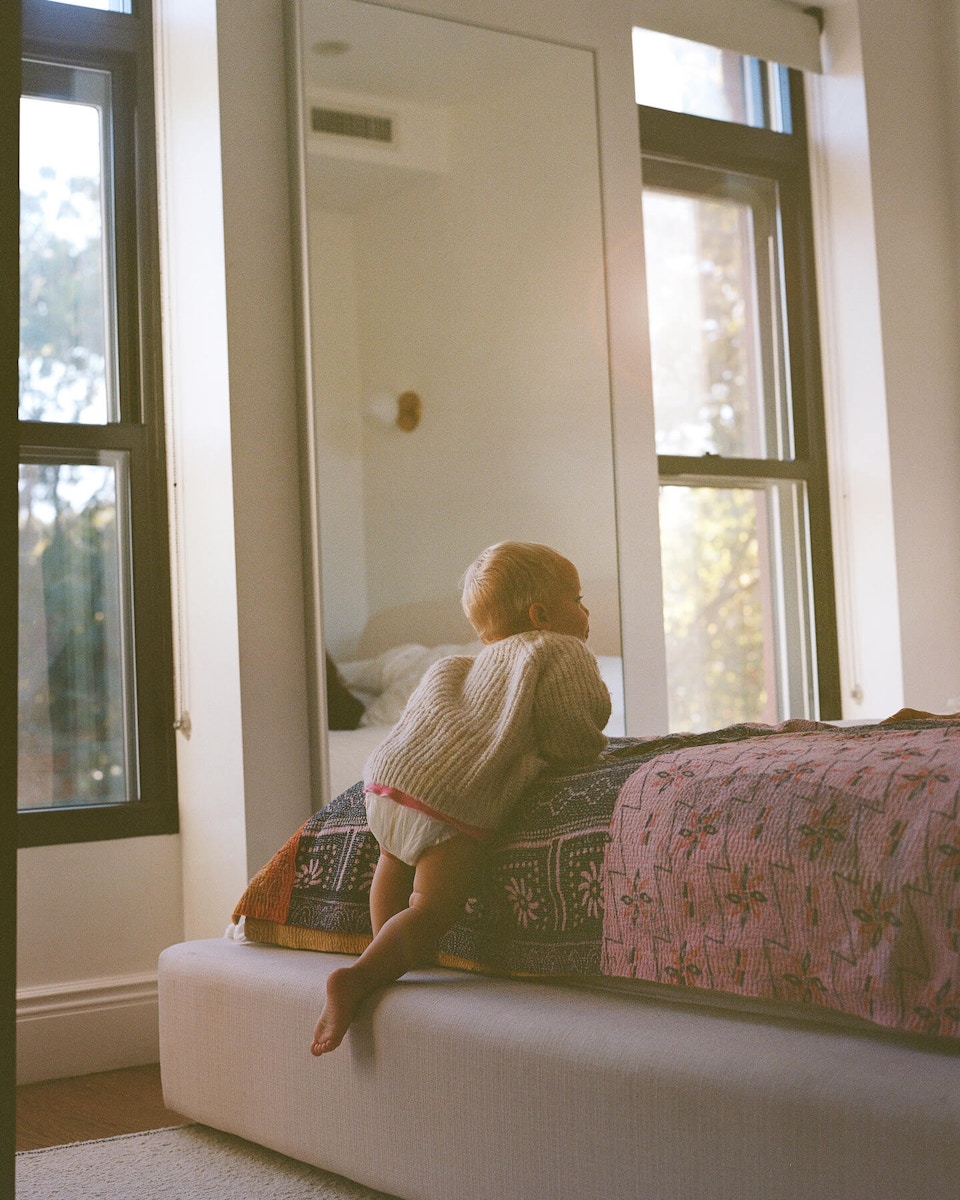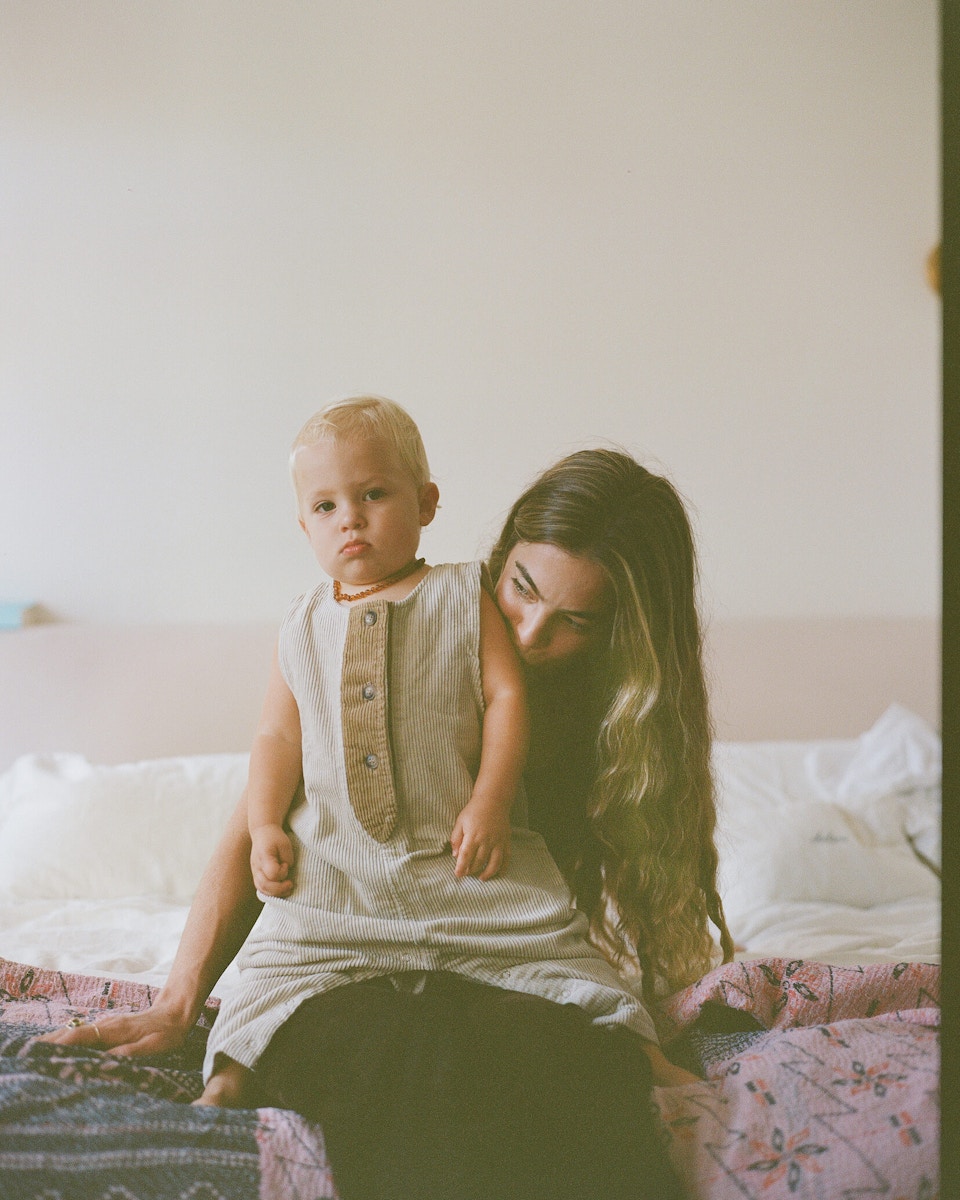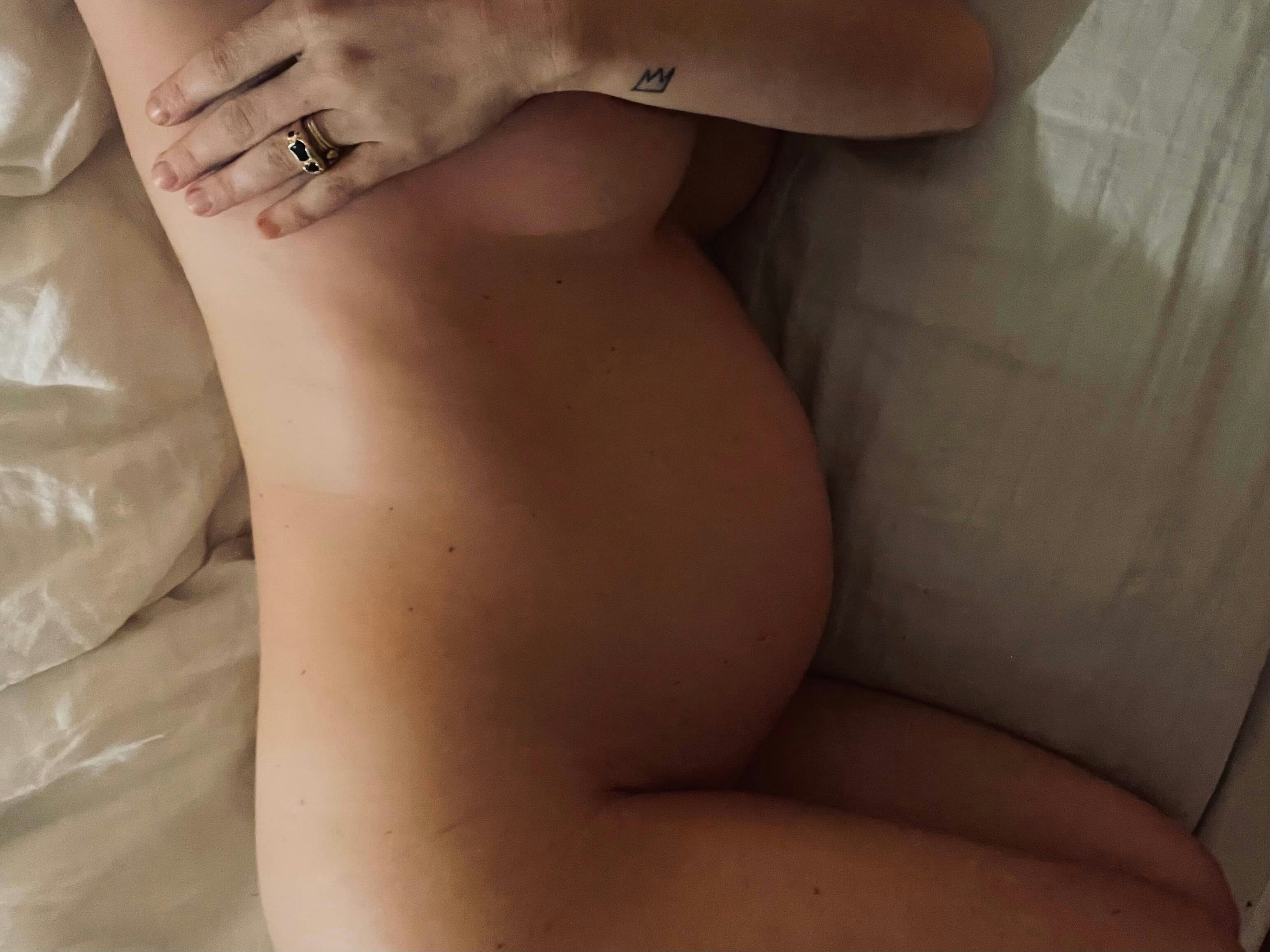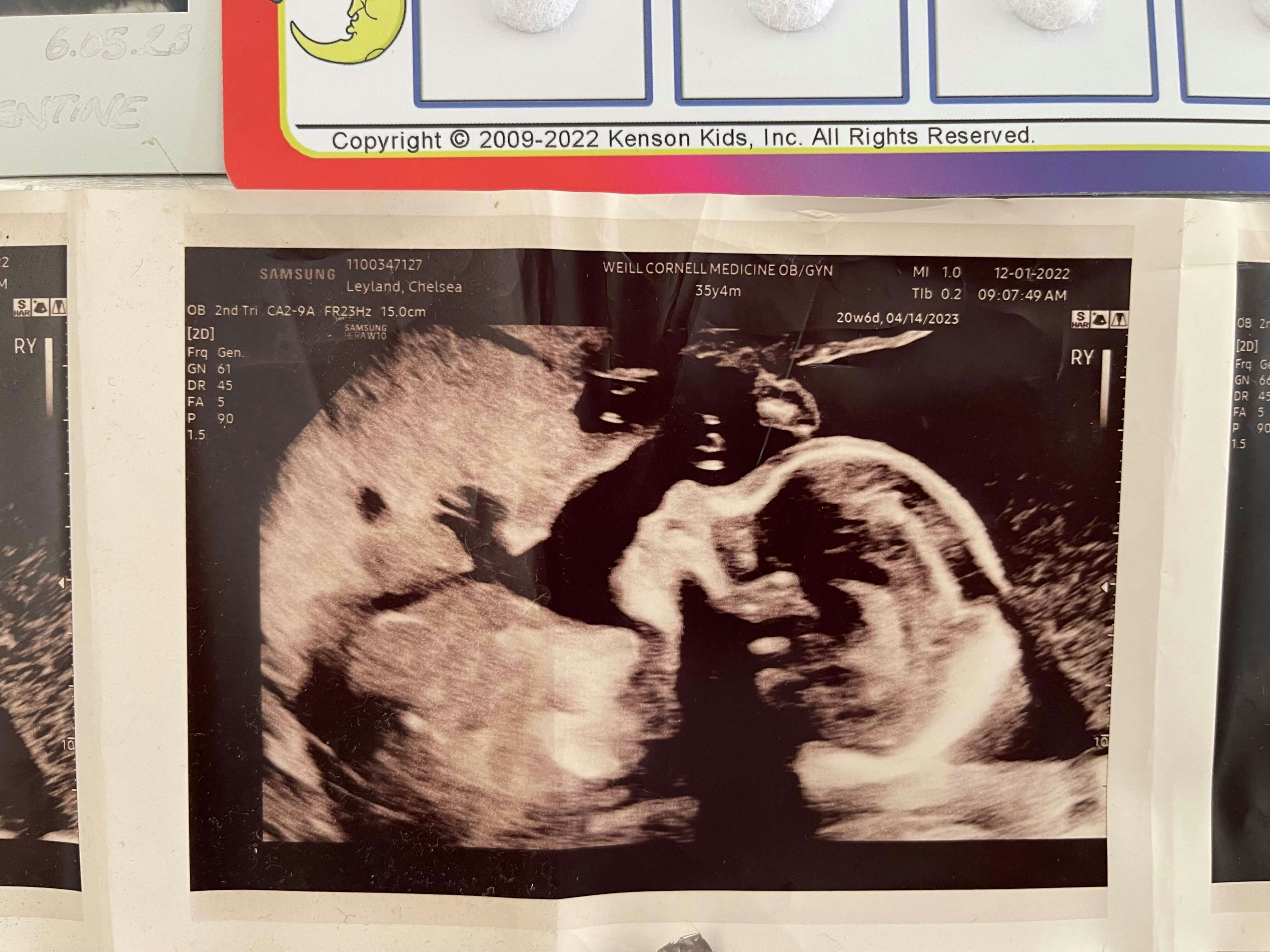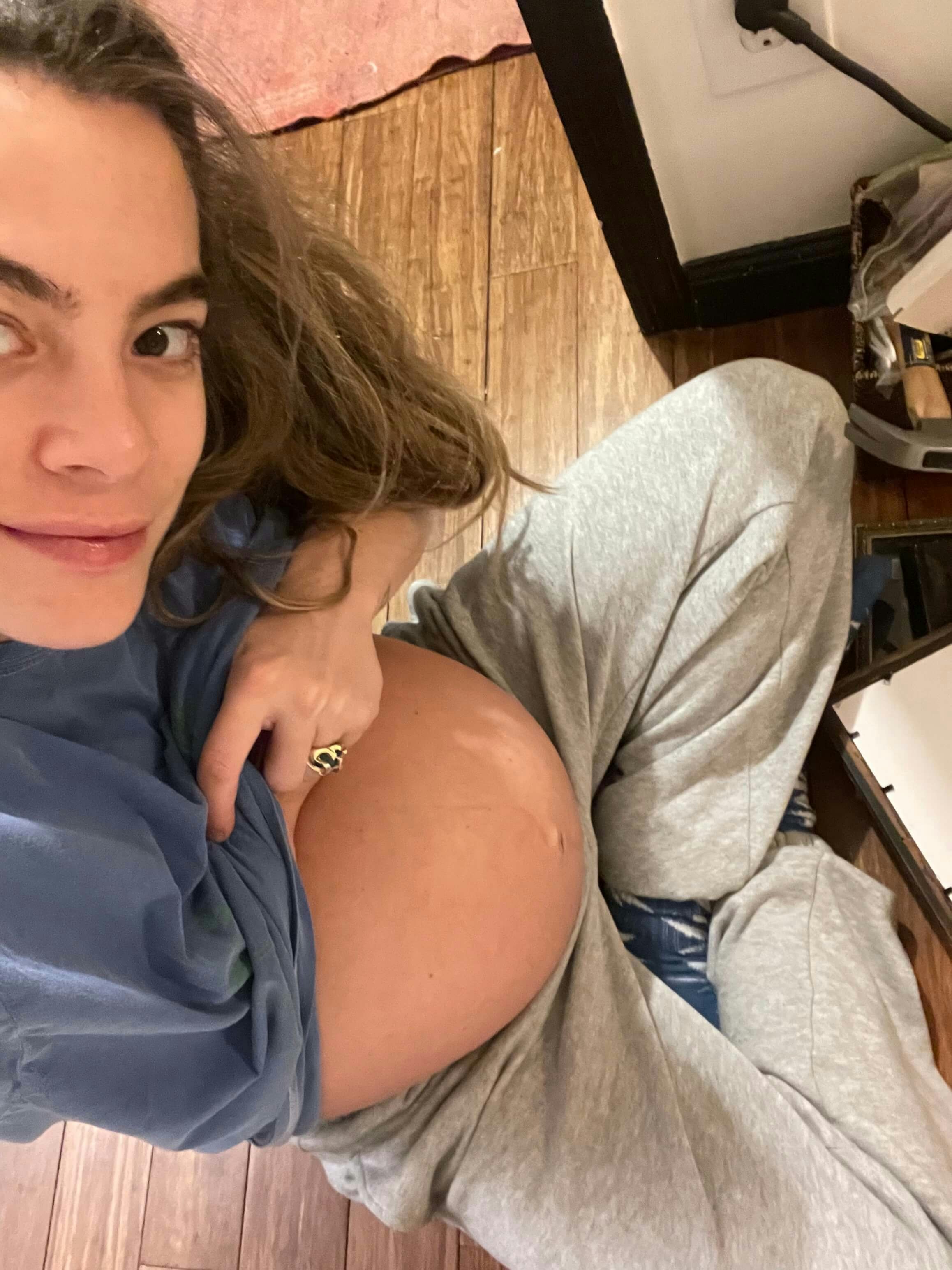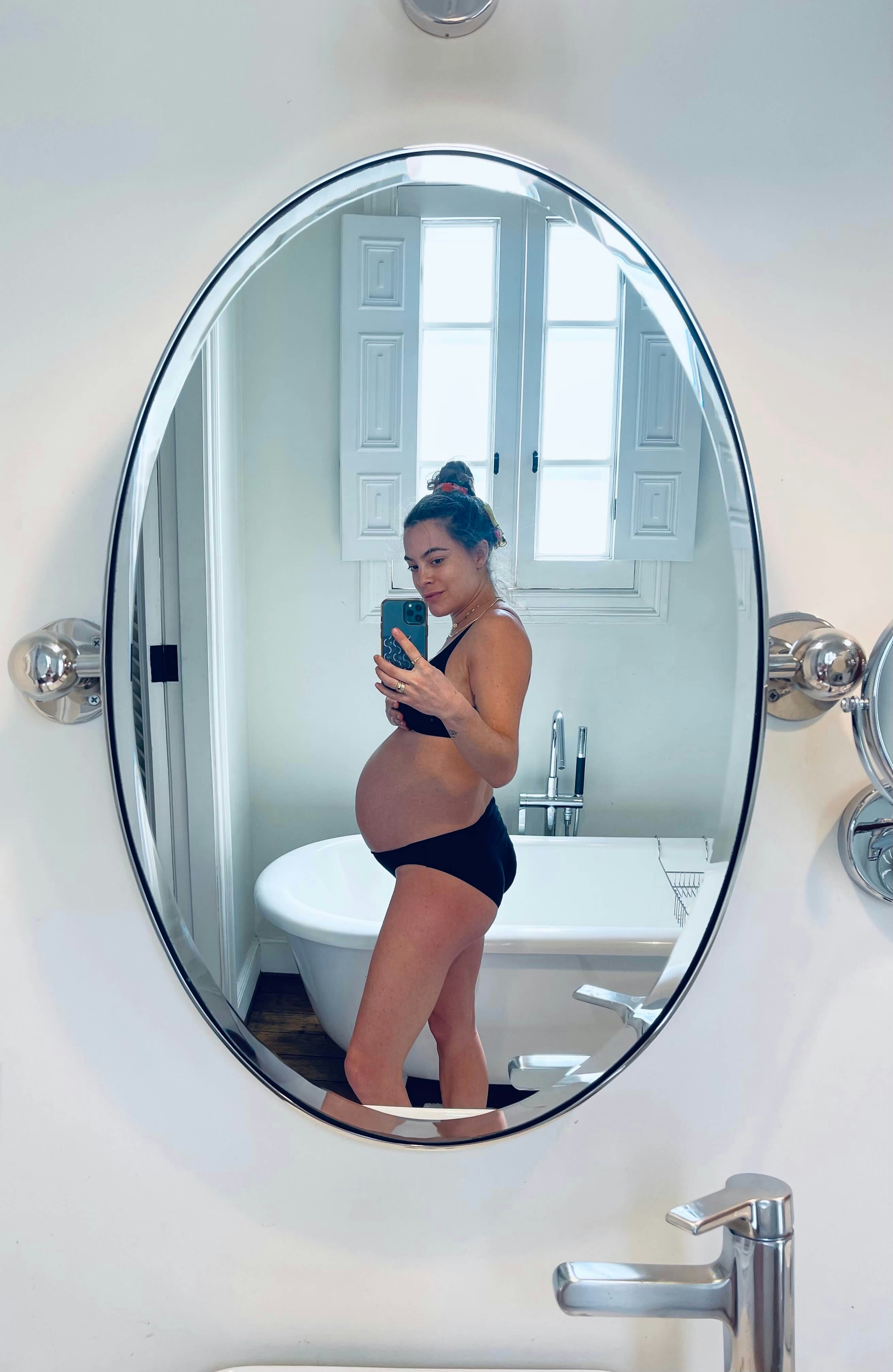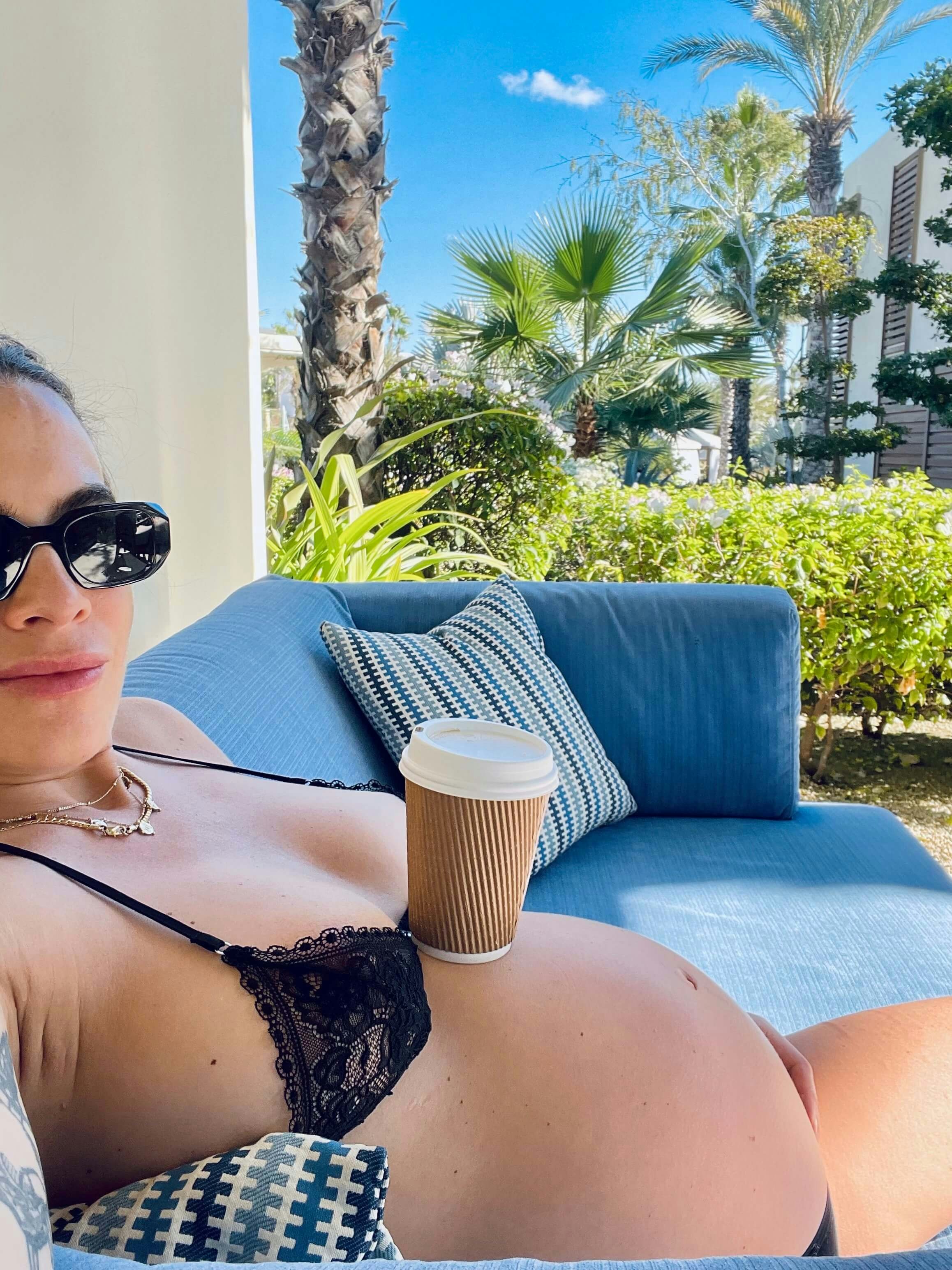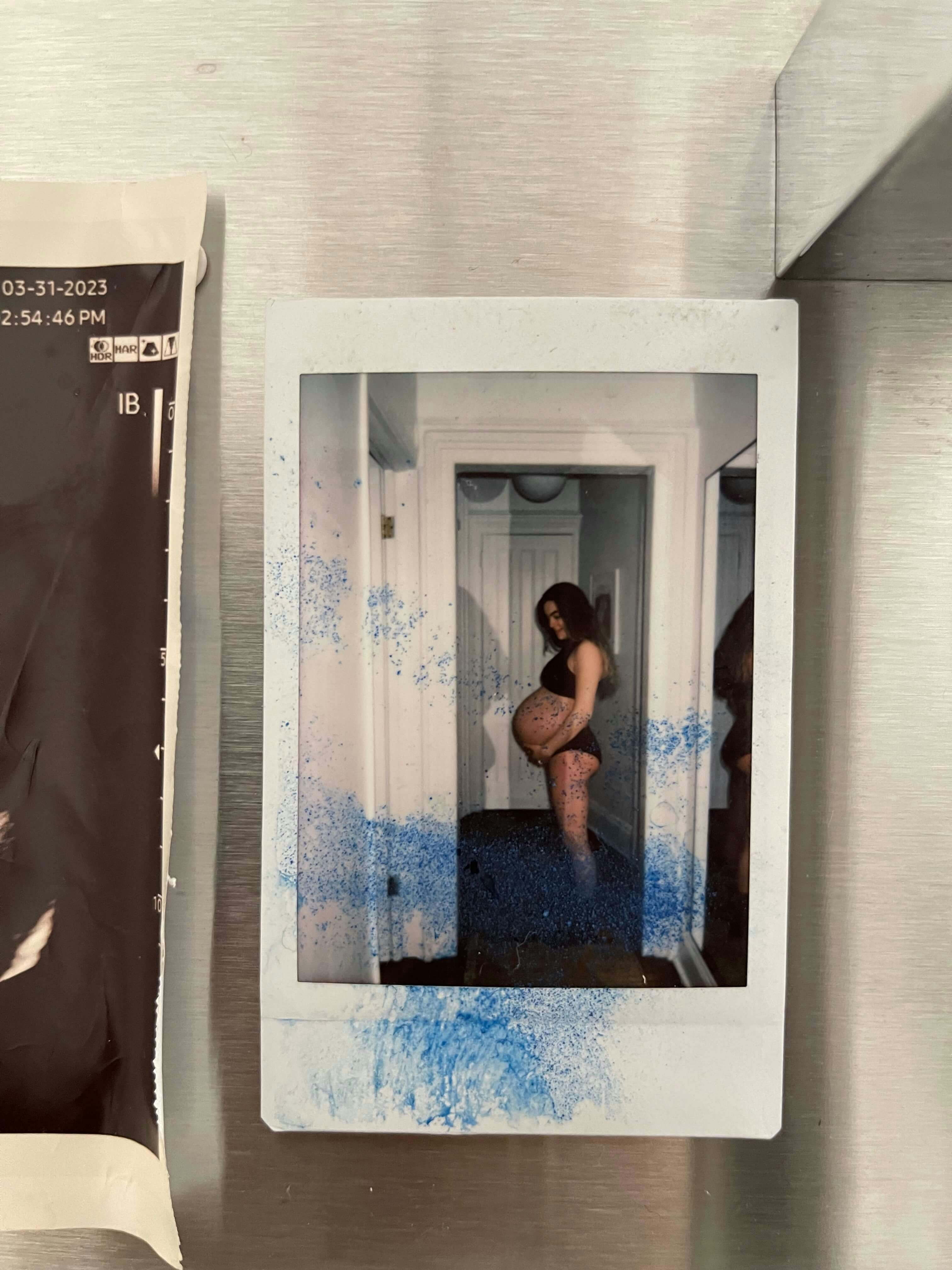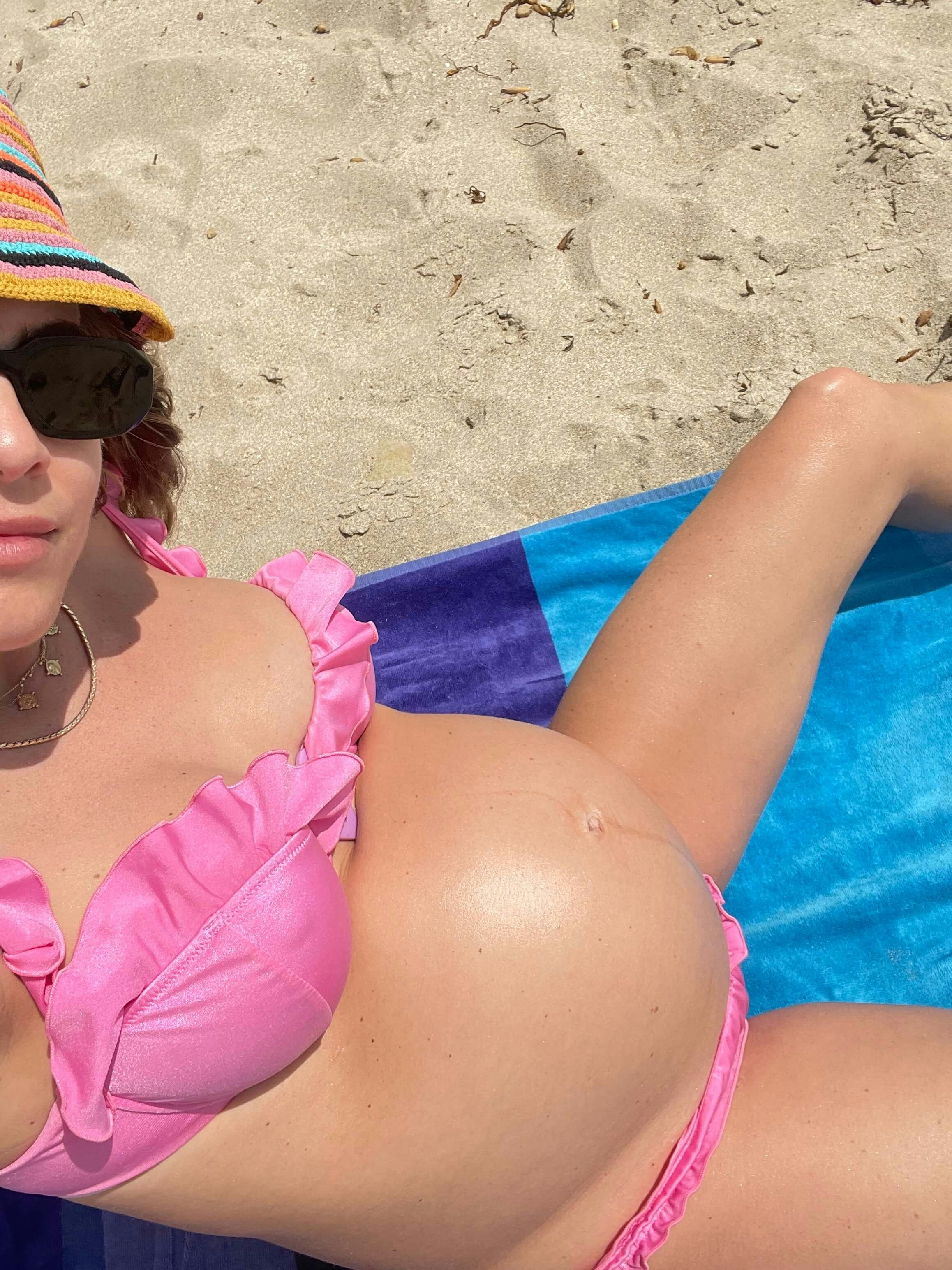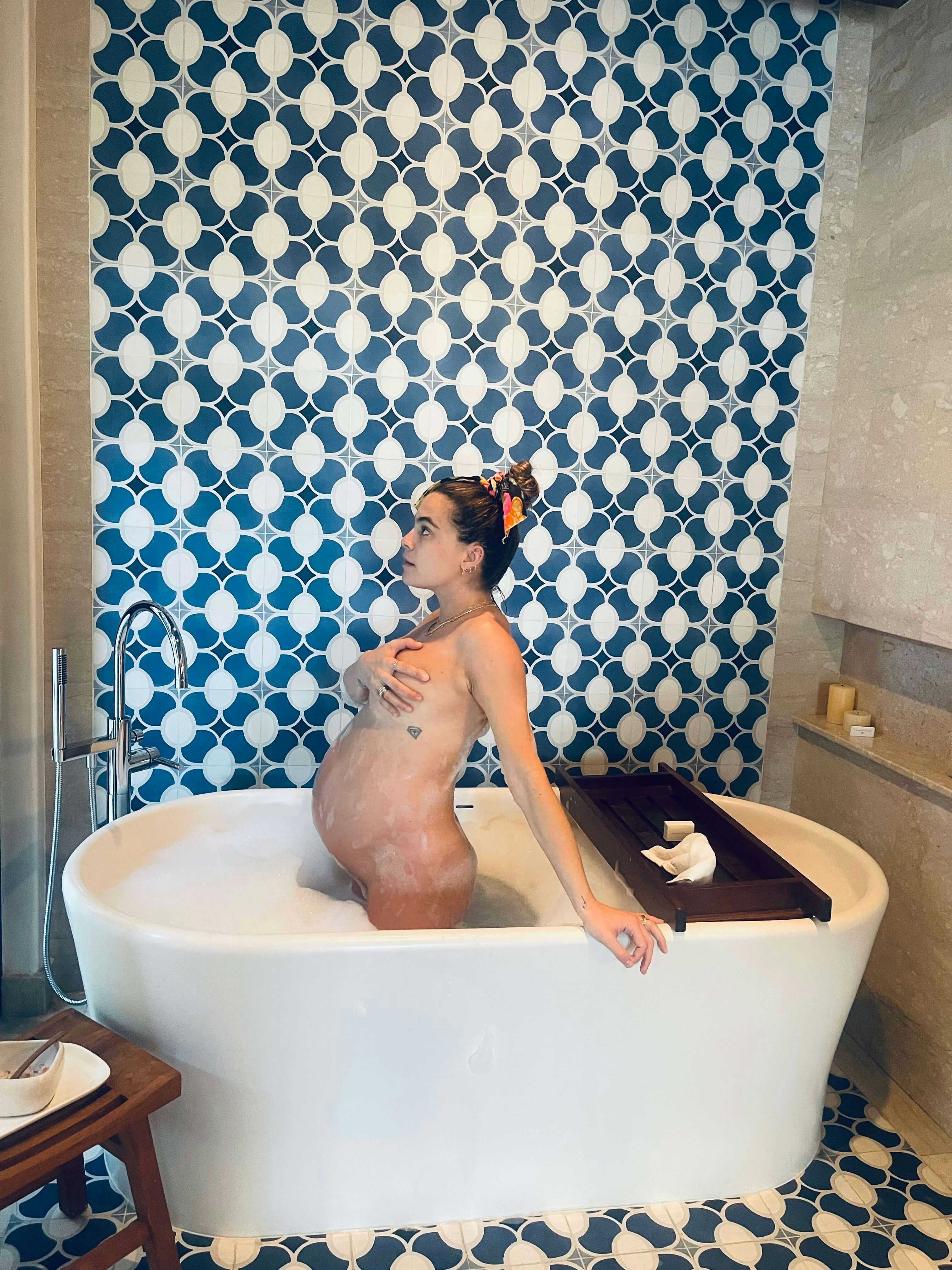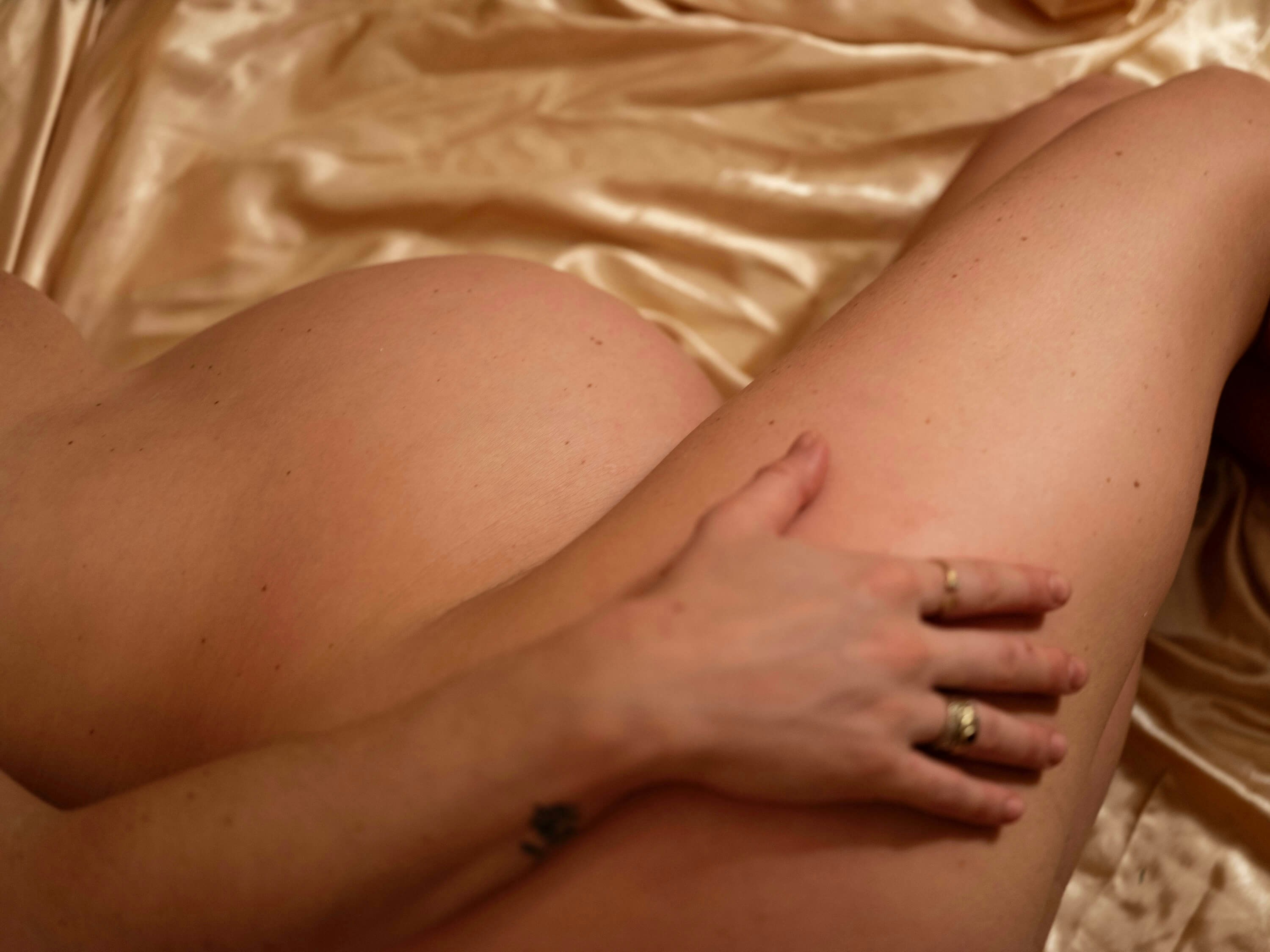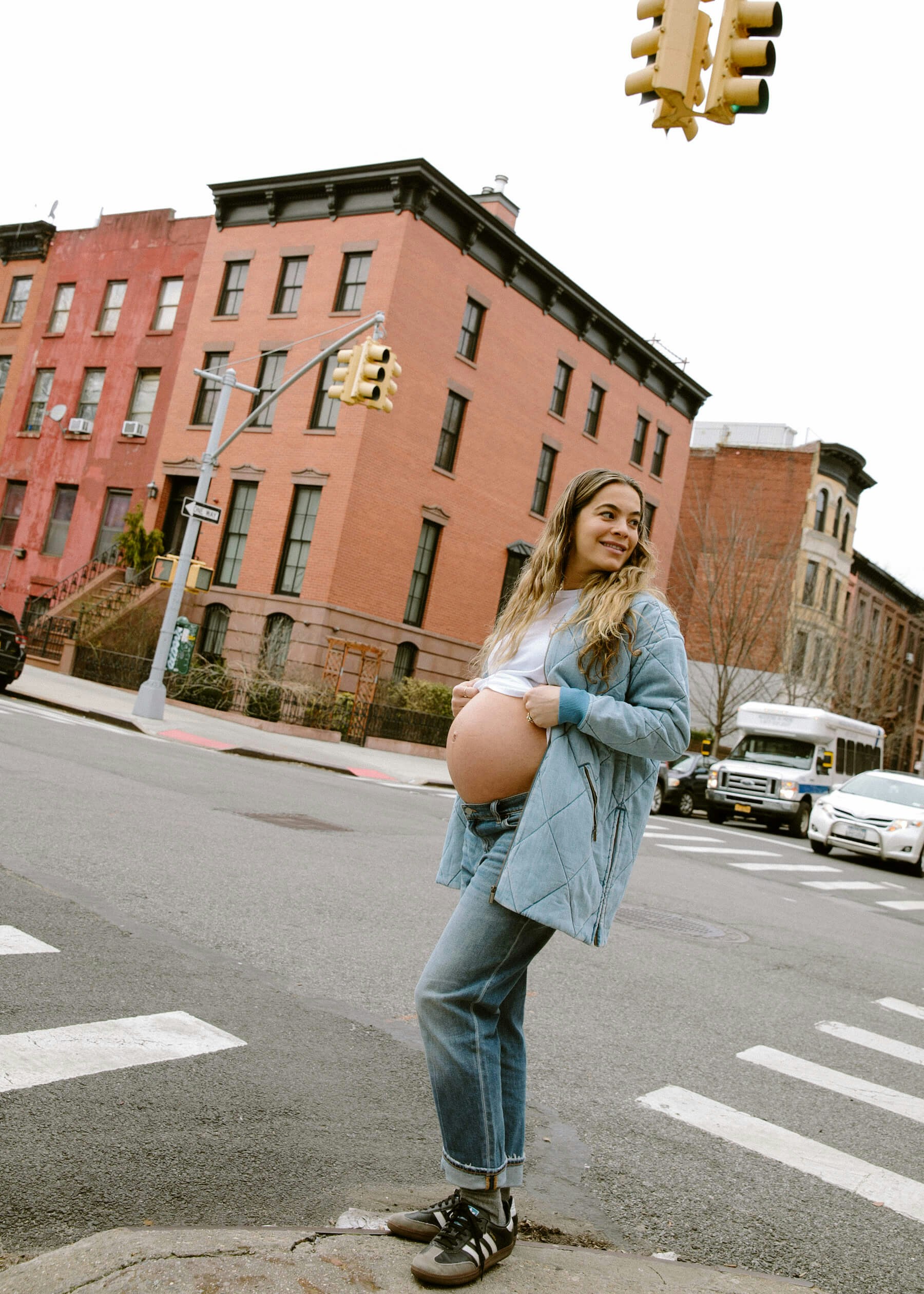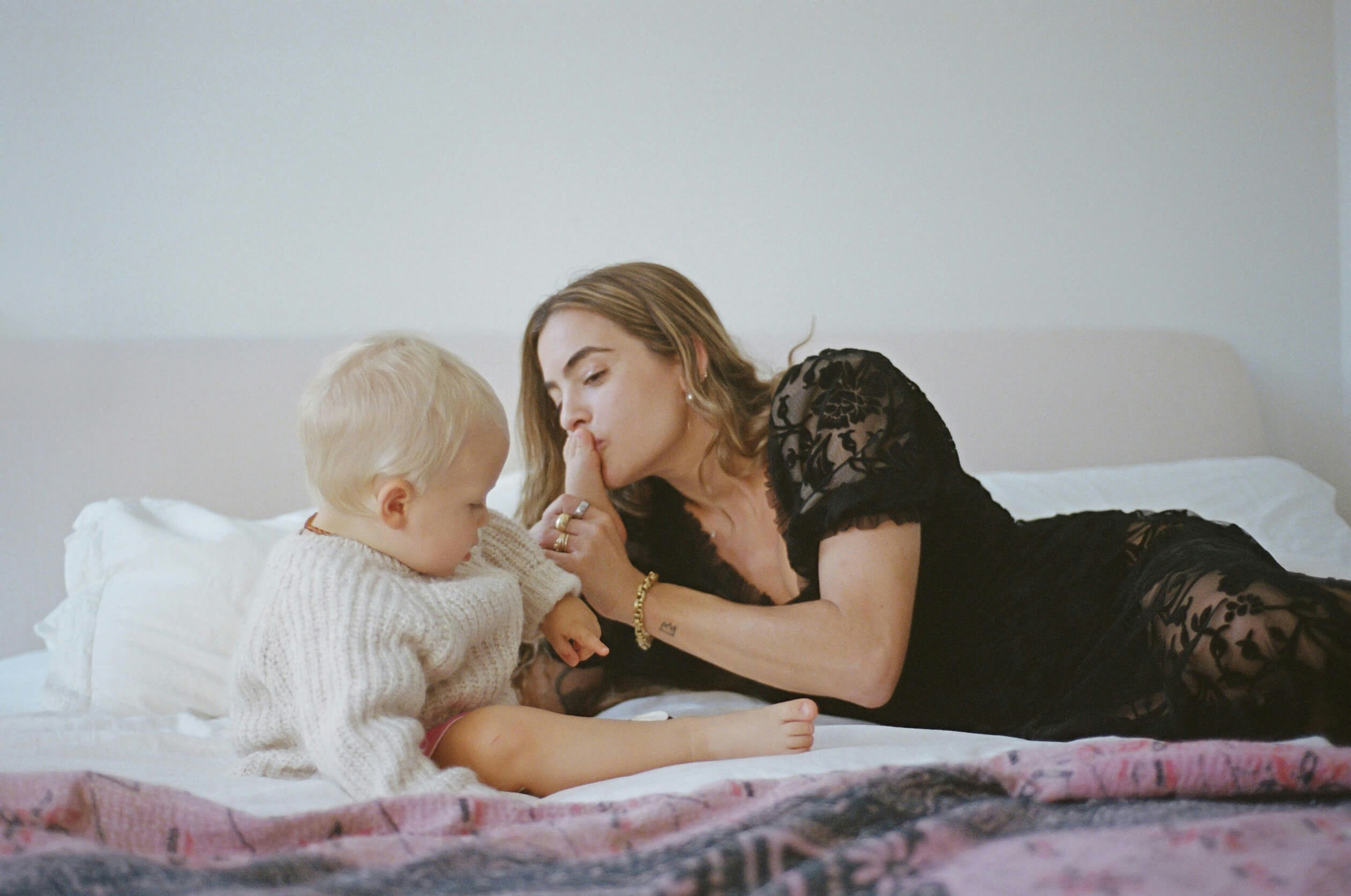
Getting Sticky With: Chelsea Leyland
Photos by Nuria Rius, Words by Anna Deutsch
Chelsea Leyland’s journey has been anything but conventional. Her path to advocacy began with her own experiences navigating epilepsy and the transformative potential of medical cannabis, leading her to share her story at institutions like the European Parliament and Cambridge University; she also spent 10 years DJing and curating music for clients like Chanel, Fendi, the Guggenheim Museum, the MoMA. She opened for Duran Duran and Diplo.
These resume checkmarks only account for a small fraction of Chelsea’s story. After years of managing epilepsy, she faced a new set of challenges: endometriosis and the prospect of not becoming a mother. Her candid reflections on these deeply personal struggles have fueled her mission to co-found Looni, a community dedicated to supporting individuals navigating chronic menstrual health conditions often ignored by the medical establishments and hindered by inadequate research. Her story is one of intuition, forging one’s own path—and demanding answers to questions that the generations of women before us wouldn’t have dared to whisper.
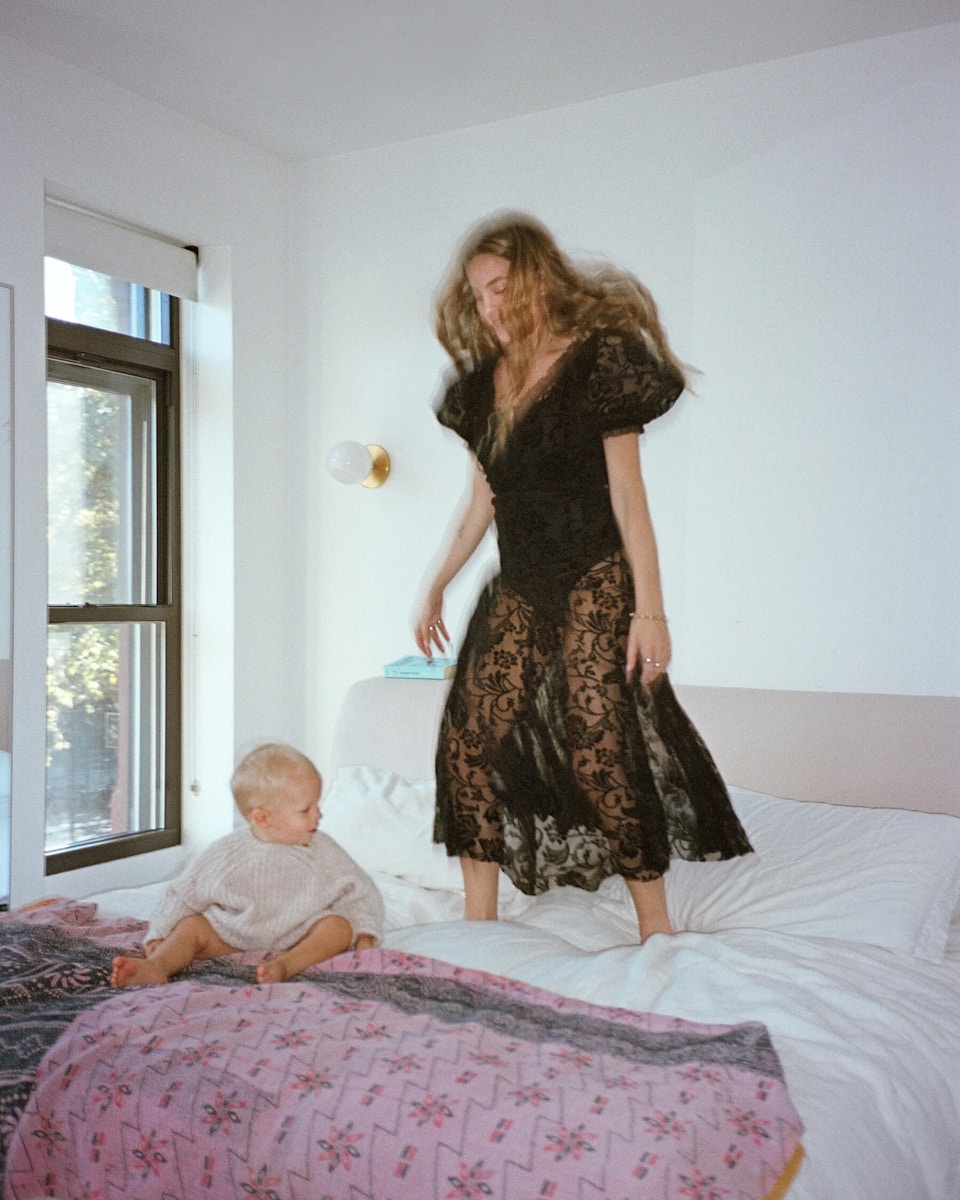
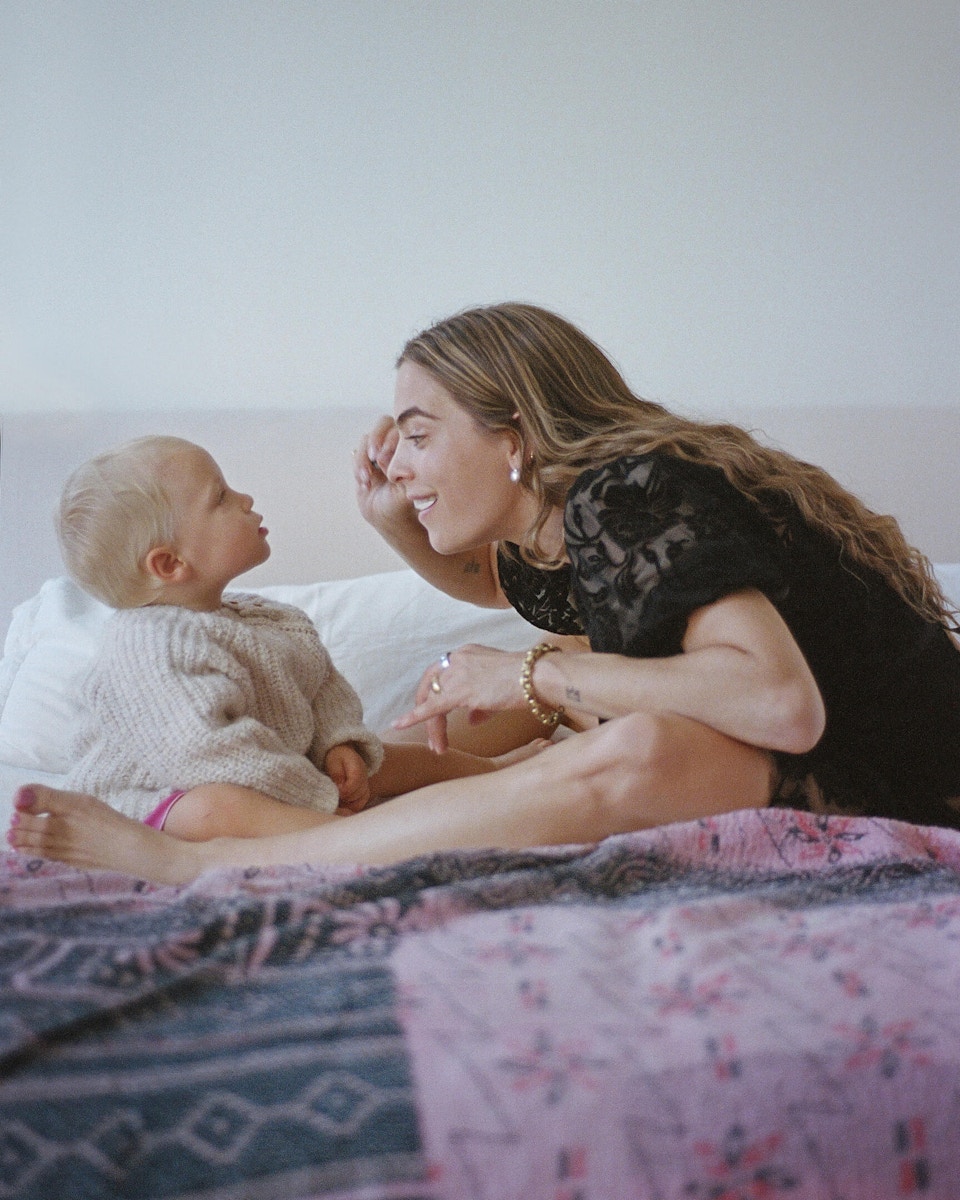
“An atmosphere of anxiety”
I was diagnosed with epilepsy in my teenage years, but my sister is severely epileptic and was diagnosed as a baby. She can have up to a hundred seizures a day, and we are told time and time again during her intensive care visits that she might not make it. The fact that she's still with us today is a miracle. But growing up with a sister who was so unwell created an atmosphere of anxiety, and that really translated into my future as a mother.
Becoming a mother has also made me appreciate my parents a lot more. I now understand how challenging it must've been for them. I mean, look, I’m texting my group chat about how difficult it is to brush a toddlers' teeth. Getting your little one dressed and out the door is hard enough. Now imagine having a child that’s being taken into intensive care by ambulances at night—that's been my parents' reality forever.
Well, sir, you were wrong, weren't you?
I was diagnosed with endometriosis when I was around 24 (I just turned 37). I had experienced over 10 years of extreme chronic pain, passing out, and vomiting. I waited over 10 years to receive a diagnosis. Unfortunately this is the case for so many women and it’s rooted in unethical misogyny. It has become normal to normalize pain. And when I was diagnosed, there was no talk about how endometriosis can impact fertility or around holistic management. The only option I was presented with was birth control or surgery. There was nothing integrative or functional about the approach to care. There was no talk of nutrition, anti-inflammatory protocols or diets.
At 30, having children wasn’t on my radar, and I even pitied friends with kids, thinking they’d checked out of fun. But then I hit 31 and I suddenly became intensely broody. All I could think about was that I wanted to go for it. Then I went through a period of having to convince my husband, and that was actually really, really challenging for me—but during this time of trying to persuade my lovely husband to have a baby, we got pregnant naturally and accidentally.
I was over the moon. He was totally freaked out. And right when he started to get on board, I found out that I was having an ectopic pregnancy. I was spotting at the beginning, went for a scan, and then we saw the fetus with a heartbeat. I was overjoyed. It was my moment. That was quickly followed with, unfortunately your baby is sitting in your fallopian tube and this is close to rupturing and we need to get you to the emergency room now before this potentially kills you.
I had actually gone to the emergency room the night before because I was spotting and nervous—it was much of the same sentiment that I've always experienced regarding my endometriosis. I remember asking the doctor if I could be having an ectopic pregnancy, and the male doctor responded, Madam, if you were having an ectopic pregnancy, you would be seriously ill right now. I was in emergency surgery getting my fallopian tube removed the next day.
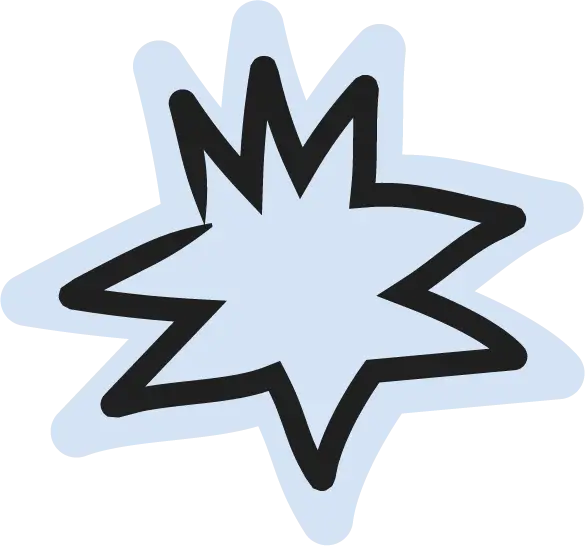
"I had experienced over 10 years of extreme chronic pain, passing out, and vomiting. I waited over 10 years to receive a diagnosis. Unfortunately this is the case for so many women and it’s rooted in unethical misogyny."
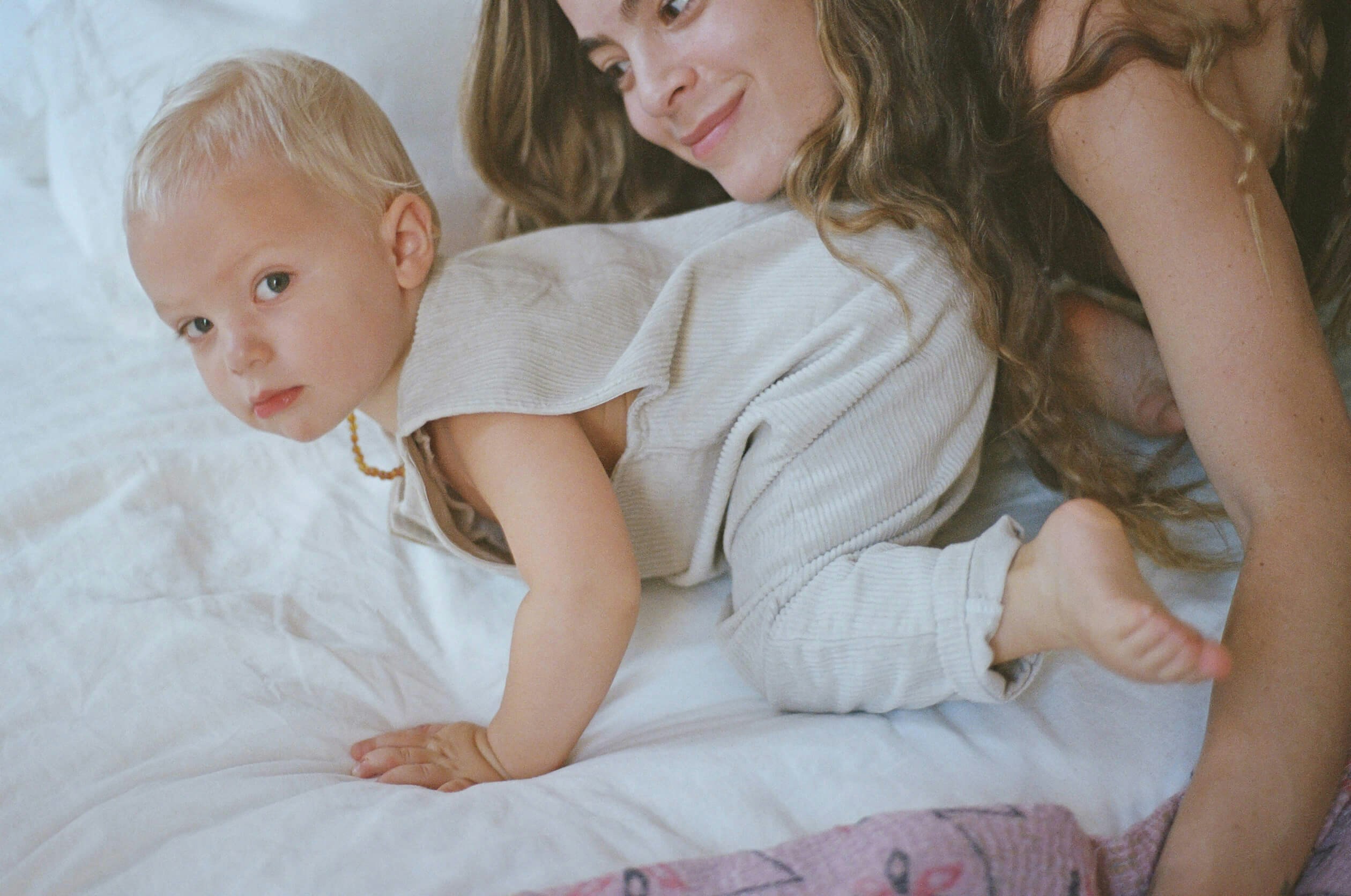
Fear-mongering at a “business” meeting
Only recently had that connection between endometriosis and issues with trying to conceive been made to me. And you are more likely to have an ectopic pregnancy when you have endometriosis. We are starting from a knowledge body deficit as women. We just are. It's so easy to educate and we're just not doing it.
If you catch it early enough, you can take a drug that will essentially flush the ectopic pregnancy out. However, when the fetus reaches a certain size, you risk the tube rupturing. And untreated ectopic pregnancies can be fatal. I believe it's still one of the number one causes of death in pregnant women. And in this Roe v. Wade overturn era, it is absolutely harrowing. It was traumatic and painful and emotional, but I was in England, and I had incredible free healthcare. They were so respectful. They asked me how I wanted to bury or say goodbye to the fetus or if I wanted to take it home.
I wasn't allowed to try for a couple of months. My body felt like a complete mess. I was sad. Then I got pregnant after a couple of months of trying, and lost that baby to a miscarriage. And honestly, that was 10 times harder than the first loss. I wanted it even more. I believed so deeply that it was my time and that I deserved it. I reached a low that I hadn't really felt since my early 20’s—a scary low—where I really, really felt like, how am I going to navigate the world without my baby?
I spoke to IVF clinics and did not have the most positive experience. I remember speaking to a specific IVF clinic in New York, and didn’t like the way that they communicated. There was a lot of fear-mongering. It felt aggressively business-like in the way that they were approaching it. I remember them saying, you don't want to regret not having a child. You need to ask yourself how you'd feel if you had another loss. But I wanted one more go before trying IVF. And then lo and behold, that next one stuck. And that's now my beautiful baby boy.
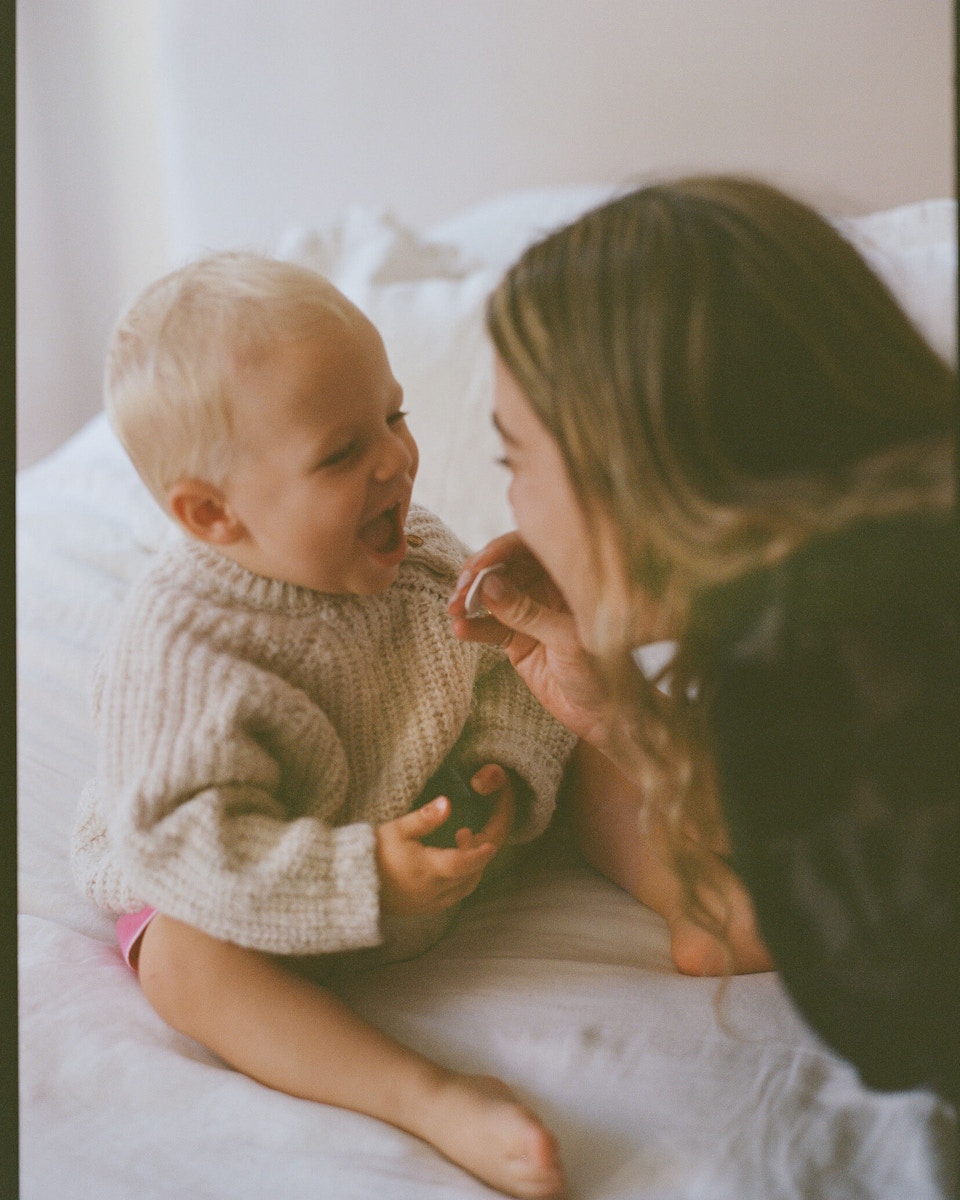
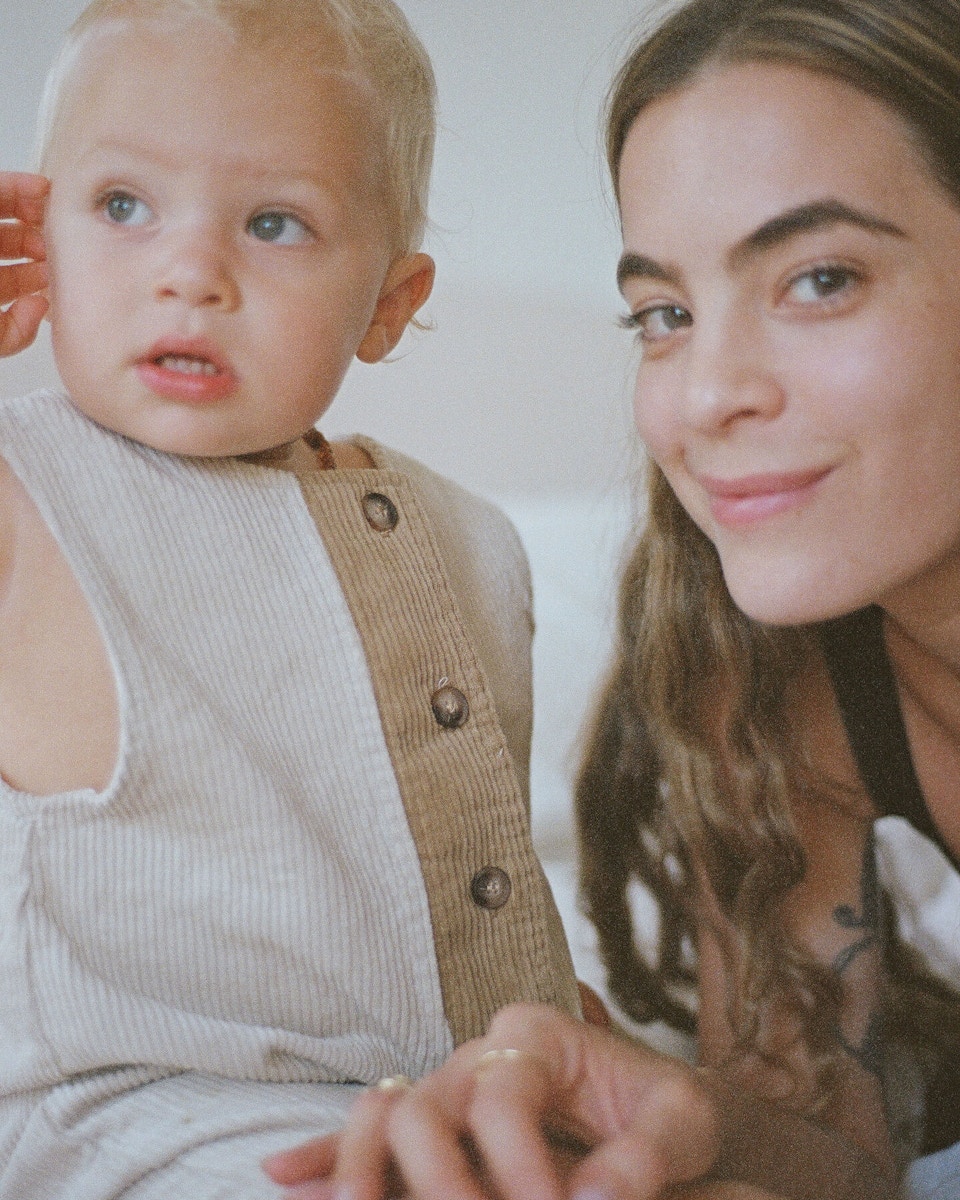
"I believed so deeply that it was my time and that I deserved it. I reached a low that I hadn't really felt since my early 20’s—a scary low—where I really, really felt like, how am I going to navigate the world without my baby?"
Epilepsy, meet medical cannabis
I weaned off of epilepsy medication in my late twenties and have remained seizure-free since starting to use cannabinoids as a management treatment. It's been completely transformative. There is a lot of controversy around epilepsy medication and birth defects, and there is still a great amount of fear for women that are using anticonvulsant medications during pregnancy.
I worked on a documentary for six years about epilepsy and medical cannabis. We spoke to mothers who had had children with severe birth defects and disabilities as a result of taking epilepsy medication, a specific drug called sodium valproate. It’s a major, major issue. And when I became pregnant, my options were going back on epilepsy medication or continuing to take cannabis-based medicine. And I had an incredible doctor that was very open-minded and holistic. And she said to me, women take all sorts of things when they're pregnant. And she said, I would like to keep you on your medication that's working for you.
I did use some THC because I use CBD full spectrum, but I also use A one-to-one and an equal part C, BD to THC. I wasn't using it daily, but I was using it. And as I said, I had an incredibly peaceful pregnancy. My little boy seems to be cognitively and neurologically healthy, no birth defects that we could see. And I feel incredibly lucky to have had the support and the healthcare that I did, because I think in a lot of places I wouldn't have had that level of understanding.
Postpartum I used a lot of arnica, which was really helpful for C-section healing. I also used cannabis because I use it as my seizure medication anyway. I was cognizant not to try to reduce my intake of THC, so predominantly I was using CB, D, but I still use THC in a very, very low dose. And honestly, I think it was one of the reasons that I healed as quickly as I did. I found it helpful for inflammation and for navigating the extreme ups and downs of that postpartum phase. I cannot imagine what it would've been like without it. And again, I'm sure there's a lot of people that might read this and think, God, that's terrible. But they were trying to get me to leave the hospital with Oxy. So you have to make your own decisions about what still travels through the breast milk.
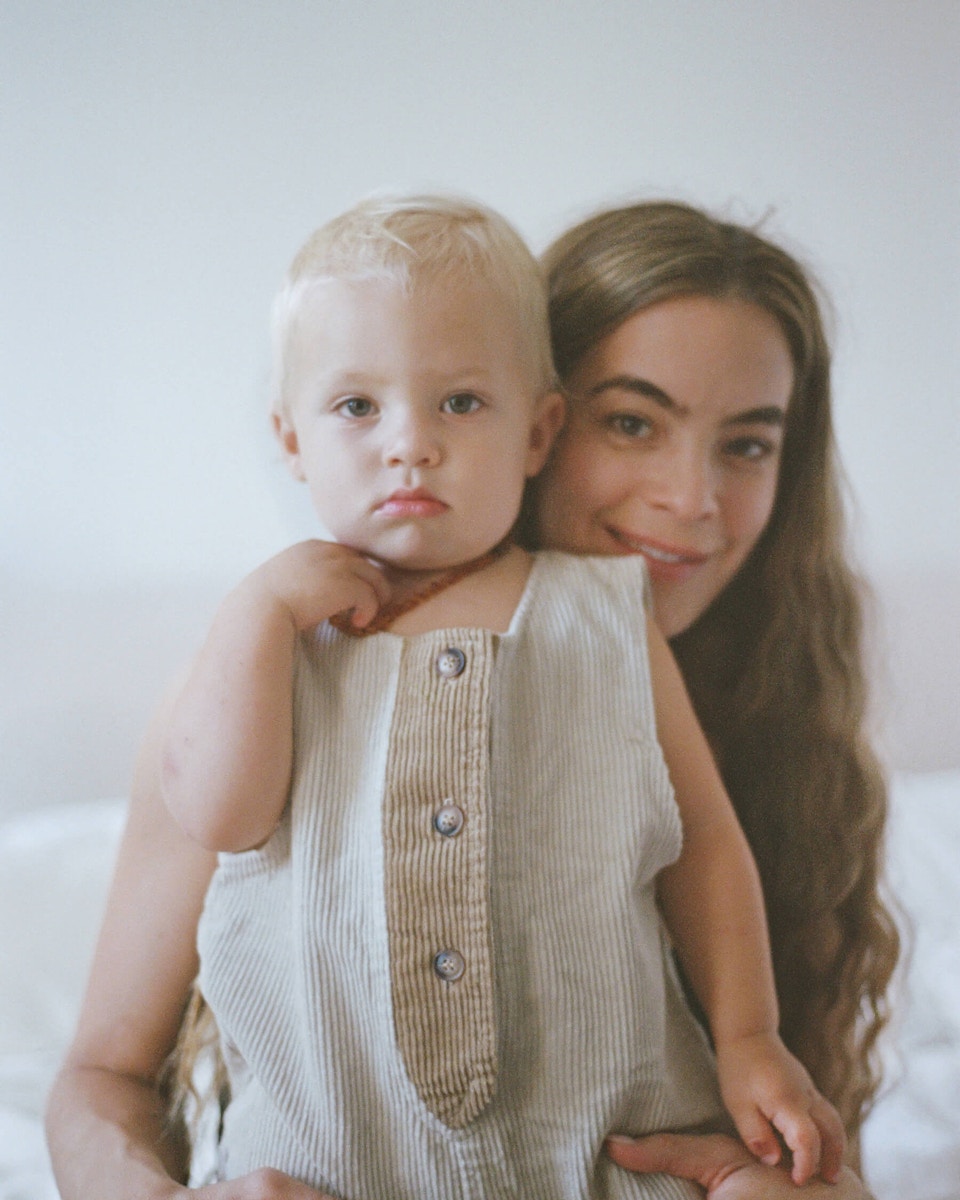
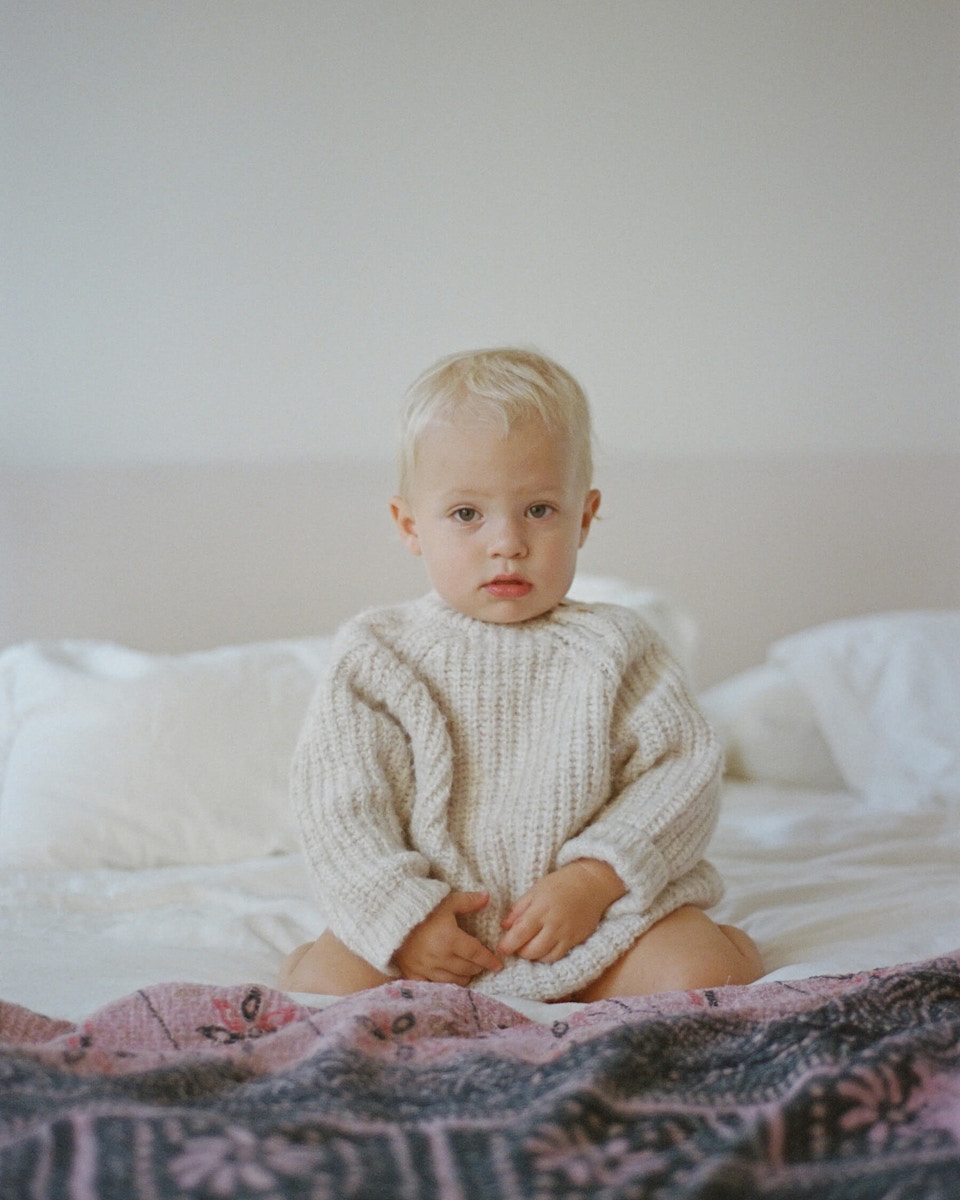
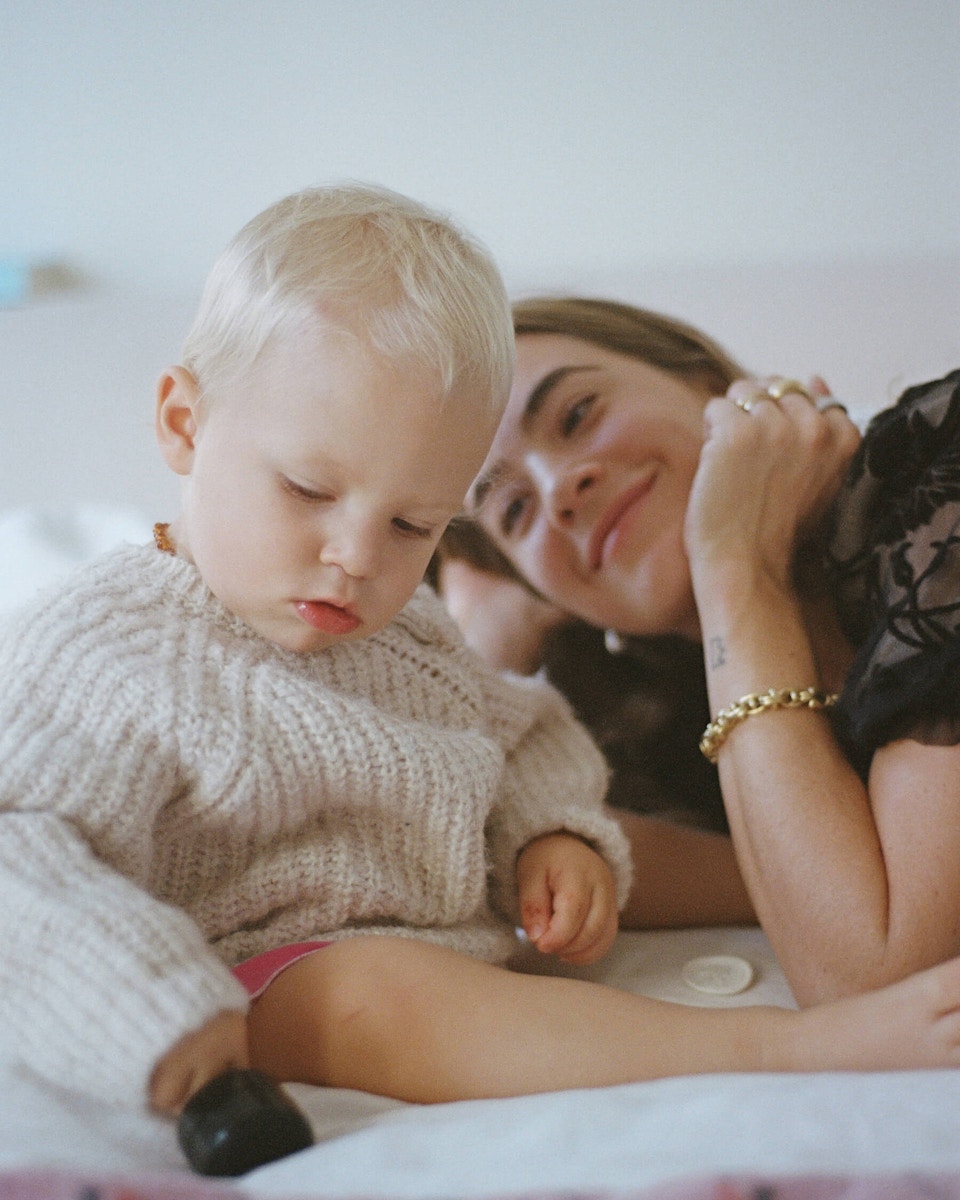
"I cannot imagine what it would've been like without it. And again, I'm sure there's a lot of people that might read this and think, God, that's terrible. But they were trying to get me to leave the hospital with Oxy."
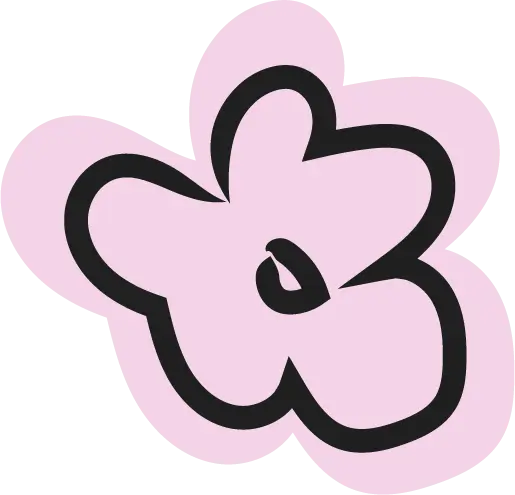
“Just get good pictures”
My doctor wanted me to have an epidural because she was worried the birth would trigger a seizure. Quite common. That happens. The number one thing that causes my seizures is sleep deprivation and of course you can be in labor like myself for 36 hours. So at 42 weeks, I was induced. I had the epidural six hours into it and I started to feel quite anxious about having a seizure. Then they padded my bed, which made me feel like I was stepping into some sort of Girl, Interrupted situation.
I remember lying down when I was having a C-section and holding my husband's hand. That was the moment I started to cry. I had nothing left in me. 36 hours, barely any sleep. And then it felt like a tooth that's being pulled out when you’re numb. And also you are on drugs, so it’s surreal.. I remember saying to my husband, "Just get good pictures." He got this one shot where they held my baby up, covered in blood, and I’m forever grateful for that moment.
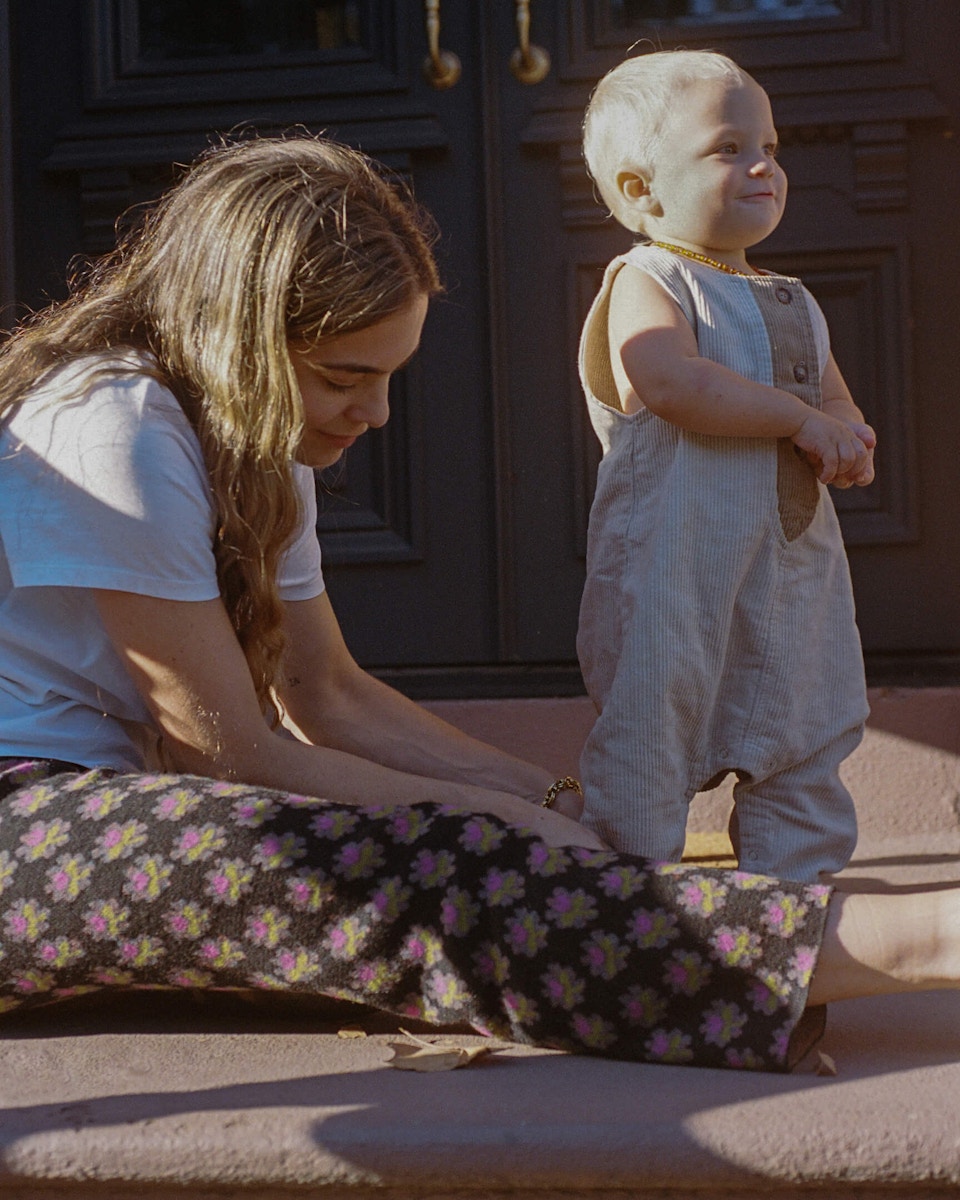
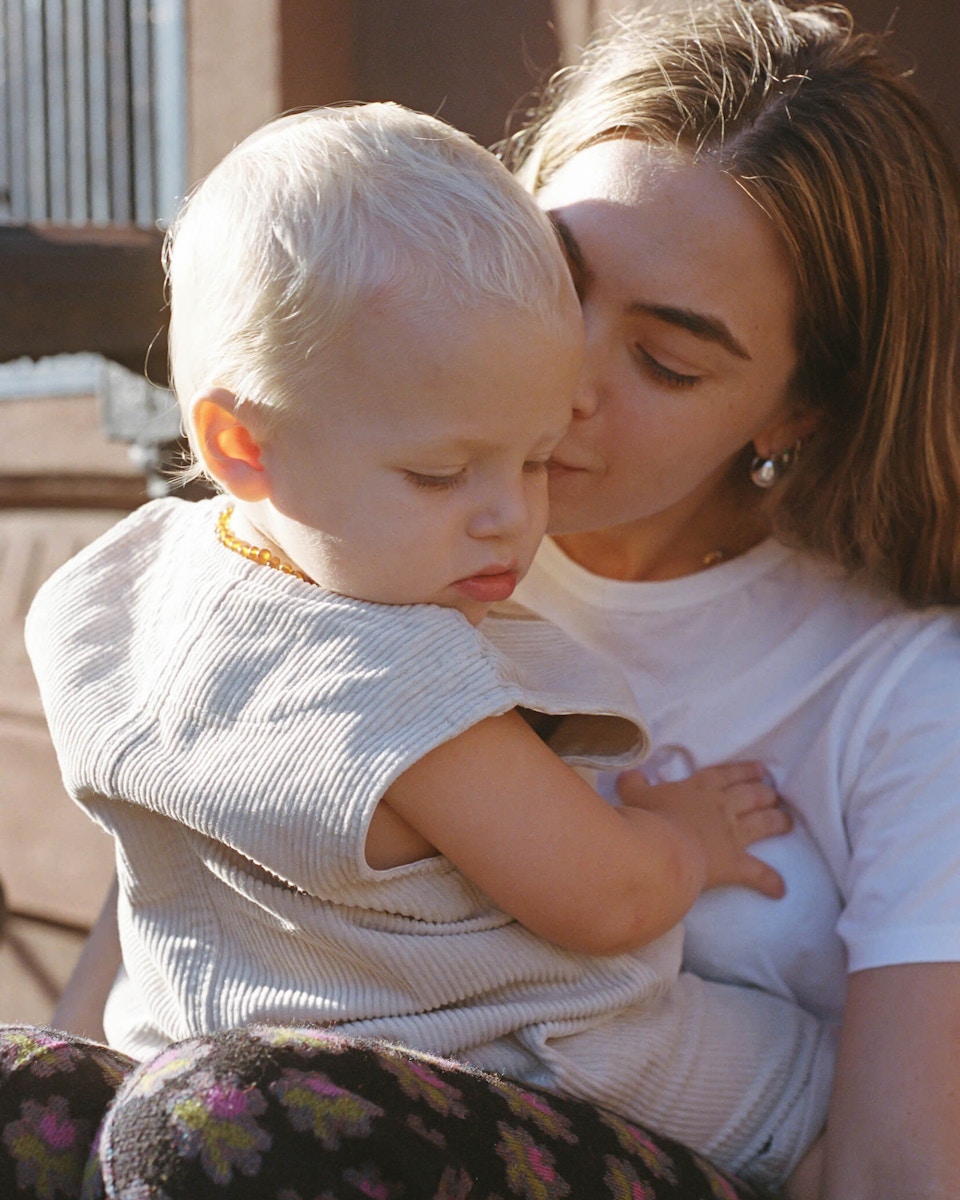
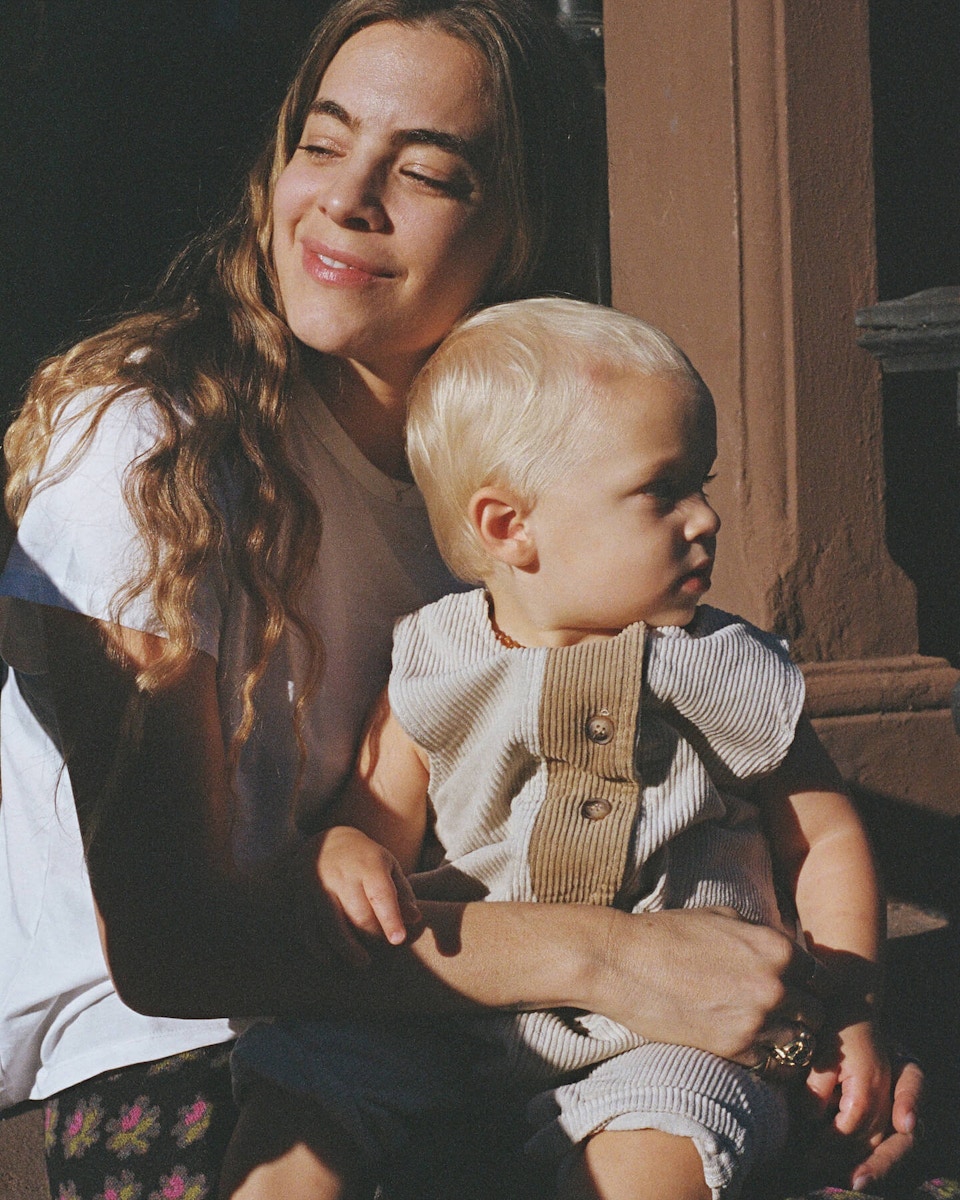
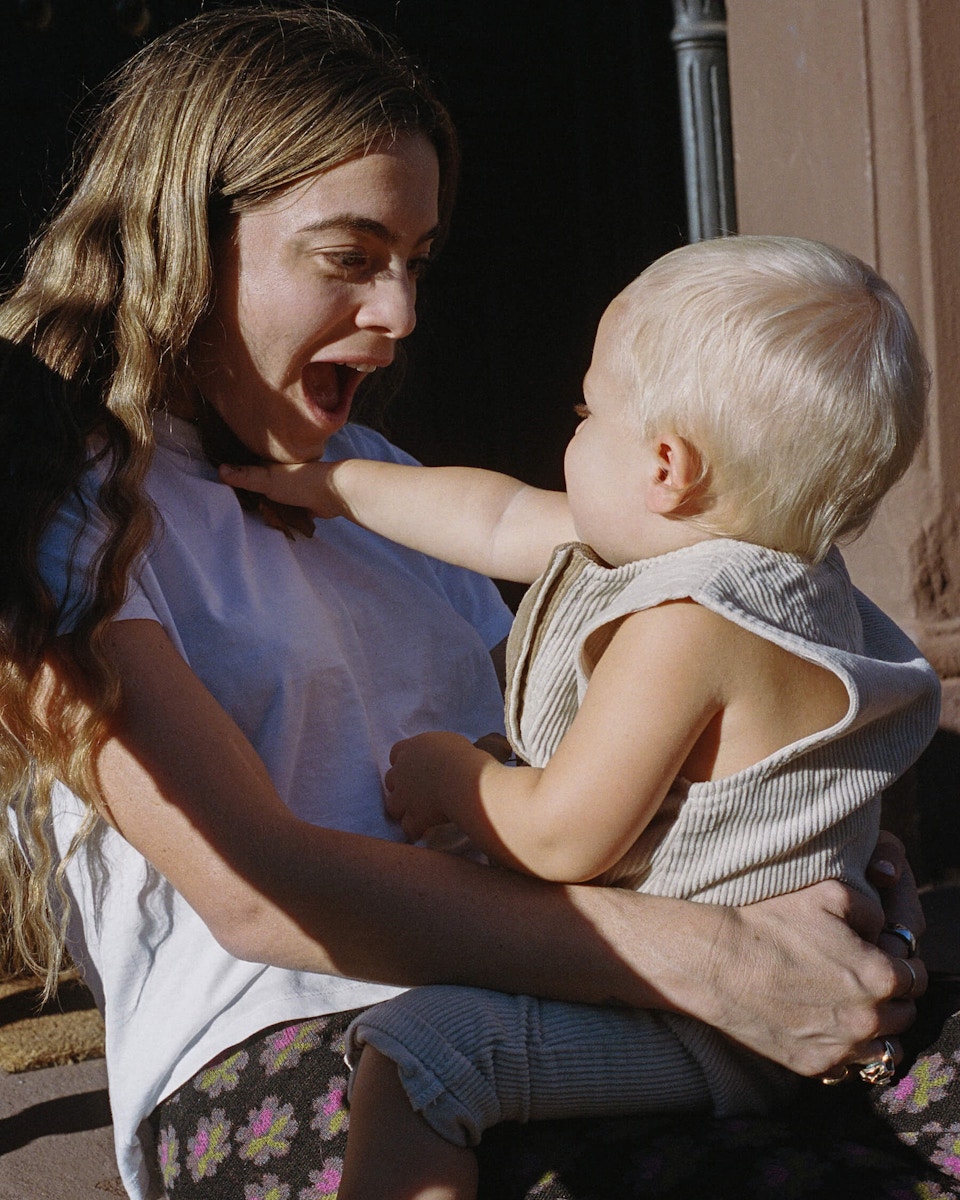
Actually, postpartum can be great
The pregnancy hormones did wonders to my whole system. Not menstruating as somebody with endometriosis is a gift from the gods. I am still cautious to talk about this because I don't know what the future holds. I got my cycle back two months after giving birth andI still have barely any pain. And overall, my endometriosis symptoms in comparison to what I was experiencing before are pretty much non-existent.
There isn't enough research on this. There's a fantastic study happening with a startup called Next Gen J, where they are collecting samples of menstrual blood to look at specific markers between my menstrual blood now that I'm still breastfeeding, and again once I stop. I’m very intrigued as to whether it is the prolactin levels that are contributing to my lessened pain. And it just goes to show there's so much we don't know, and so much research that we still need to do to improve the lives of women. I worked with a more holistic physician that said breastfeeding can sometimes lower progesterone, which sort of leads me to where I am today.
My reason for not stopping breastfeeding, though, is sort of multi-pronged. One, it’s keeping my endometriosis at bay, I think because that's keeping my estrogen levels down. Also, oxytocin is an interesting one. We still don't know exactly what that does for our body and our system at decreasing the chances of breast cancer, as somebody that has the BRCA2 gene.
I've started taking bioidentical progesterone now after having figured out that my progesterone was really low, which is often the case for people with endometriosis or estrogen dominant conditions. And it's been really interesting. I wanted to set myself up so that when I was ready to finish breastfeeding, my endo didn't revert back to where I was. I obviously still haven't given up breastfeeding, so I'll let you know how that goes. But this whole process has really, really changed my life.
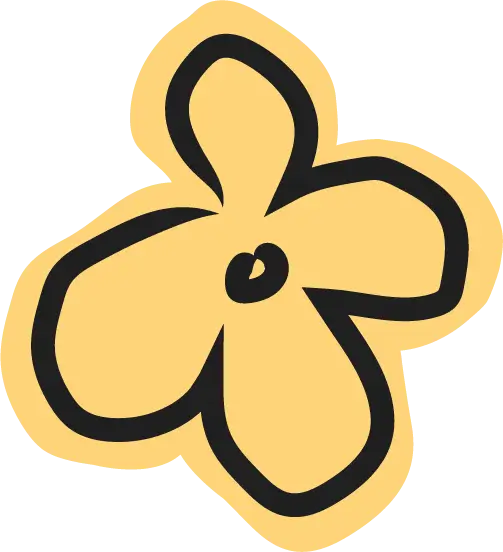
"The pregnancy hormones did wonders to my whole system. Not menstruating as somebody with endometriosis is a gift from the gods. I am still cautious to talk about this because I don't know what the future holds."
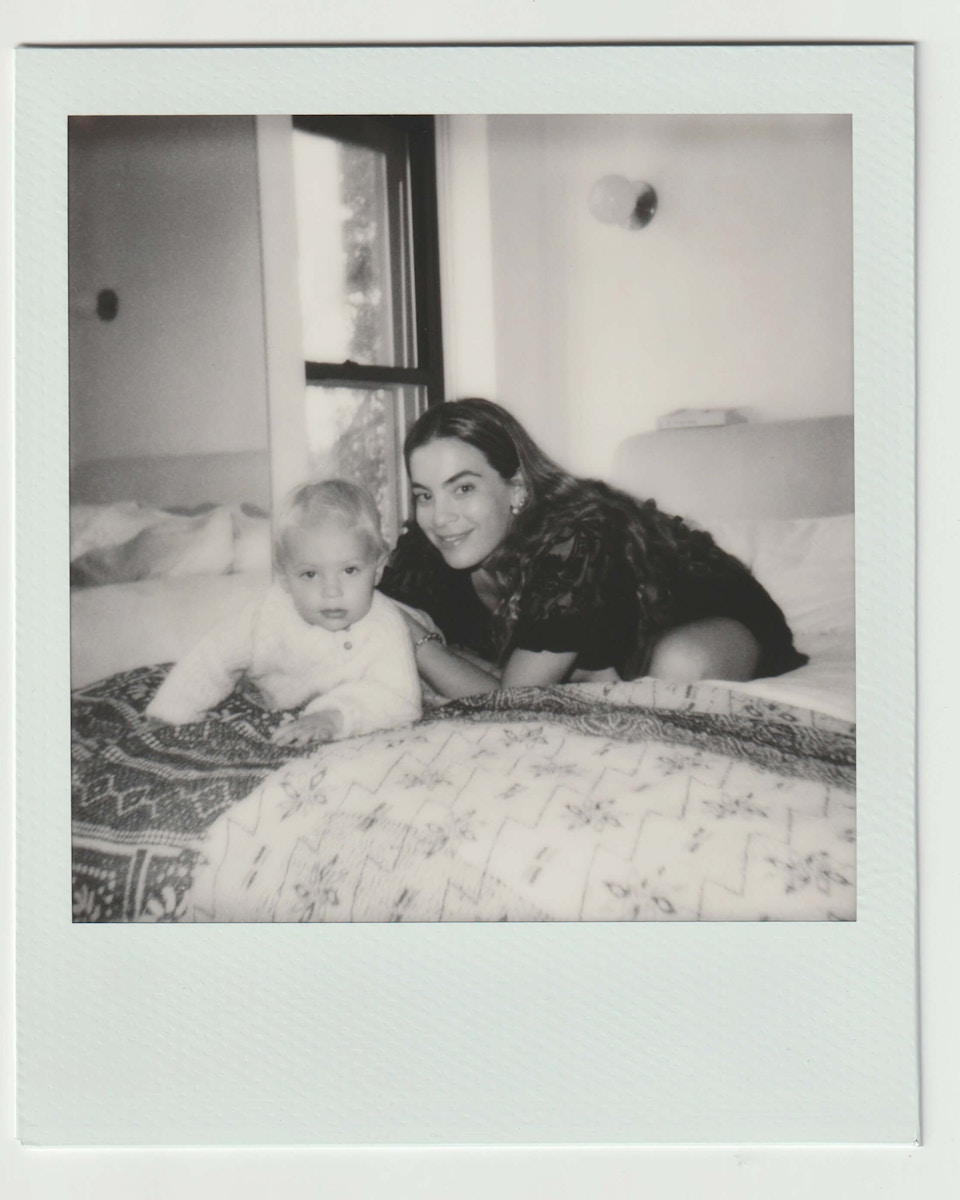
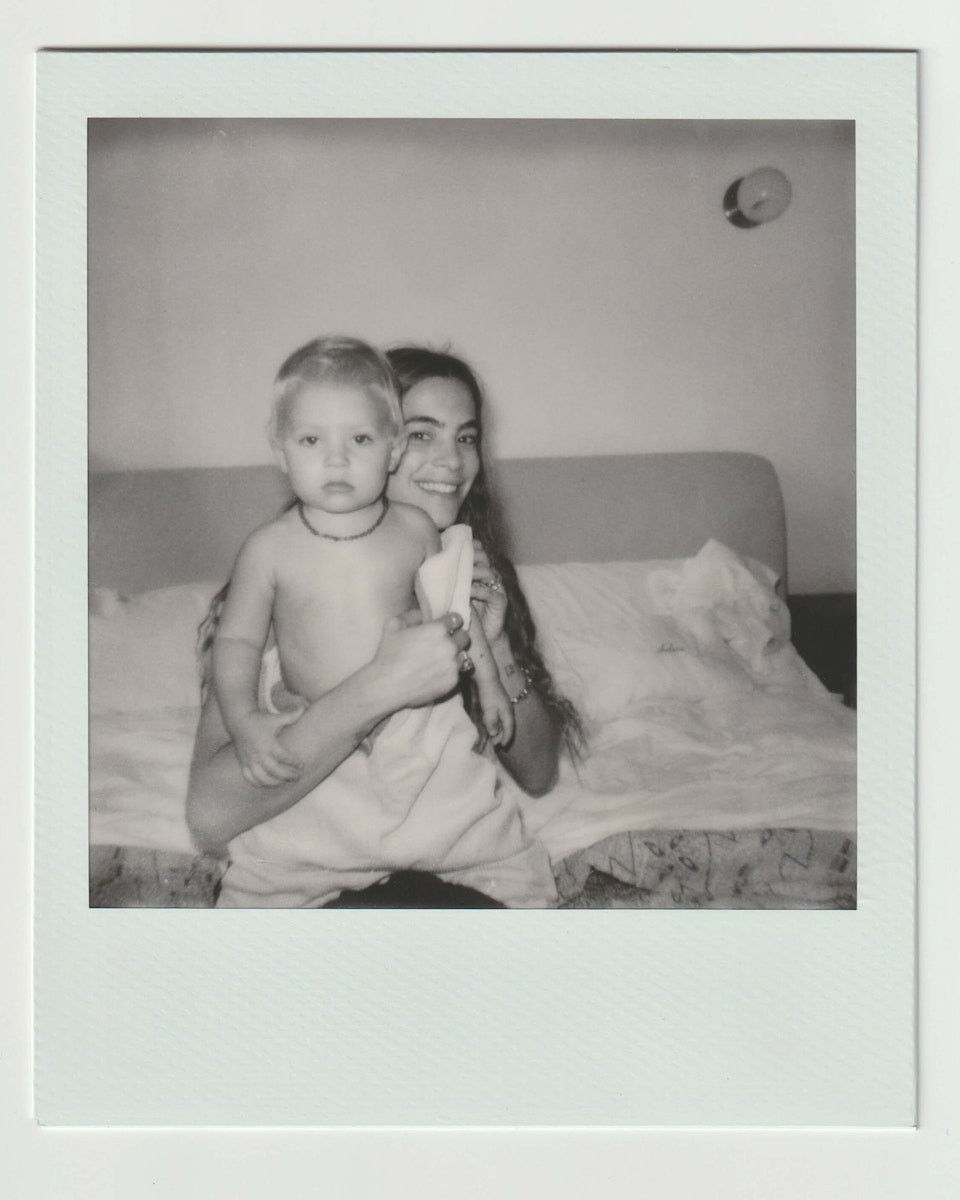
The medium is (not) the message
I did a lot of acupuncture. I focused on having fun and enjoying things that I couldn't enjoy if I was pregnant. That’s one of the tools I would give women that are struggling every week, to go out and do one thing that you wouldn't be able to do if you were pregnant. Drink wine and eat a lot of raw fish.
My husband could no longer support me in the way that I needed. My friends who were already mothers certainly could not support me. My friends who hadn't lost babies, who didn't want to be mothers yet, couldn't support me. My family couldn't support me. That’s why I started the Looni community. The only people I wanted to speak to were people that were going through the same thing. People that knew what it was like to long to be a mother, but be faced with this fear that they might not be one. Looni has transformed into a place that not only supports women trying to conceive, but who also have chronic menstrual health conditions—it’s also for women who are struggling with their cycles.
I view technology in a positive light, and there is something about sitting behind a screen that allows us to be more vulnerable. I was able to connect with this community via DM, and we shared resources and our pain. I mean, in the eighties, you were almost persona non grata for talking about these topics. You were an embarrassment, you were a burden, you were unhinged. And when you go through these challenges as a woman, you have so much respect and appreciation and sadness for the generations that women who came before you, for all your ancestors who struggled and didn't get to express themselves because of the sheer inequality of the world that we live in. It's so demeaning.
"And when you go through these challenges as a woman, you have so much respect and appreciation and sadness for the generations that women who came before you, for all your ancestors who struggled and didn't get to express themselves because of the sheer inequality of the world that we live in."

